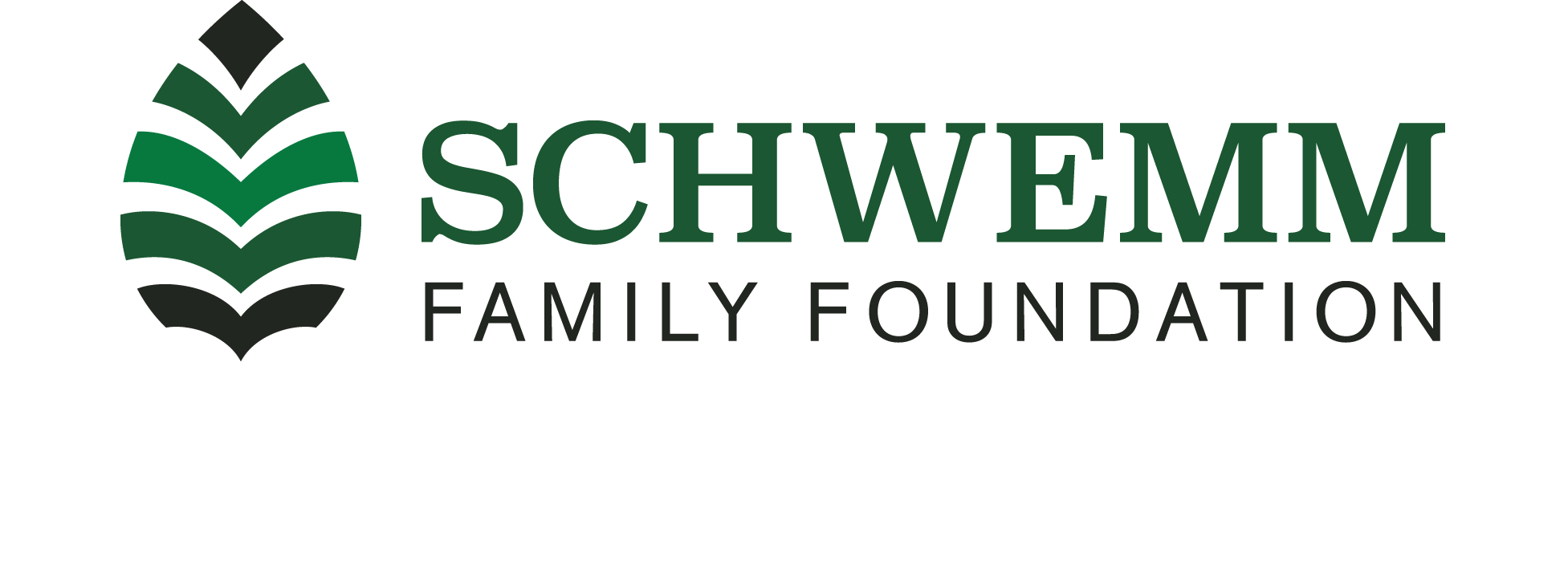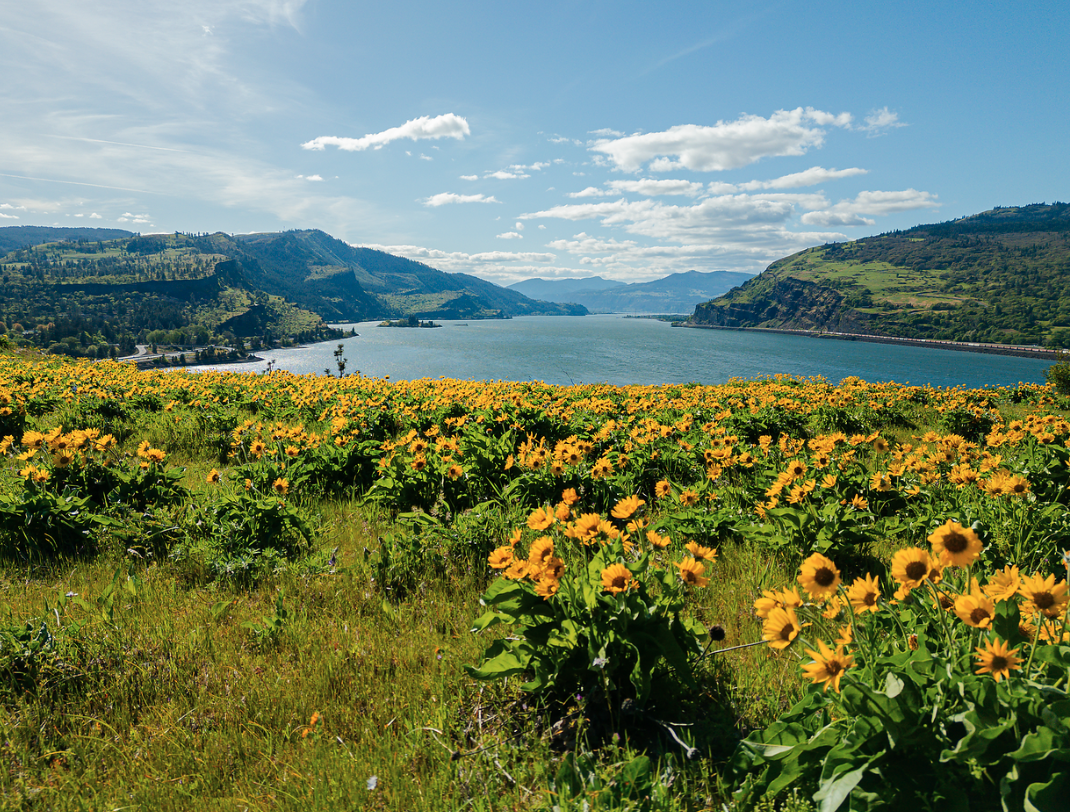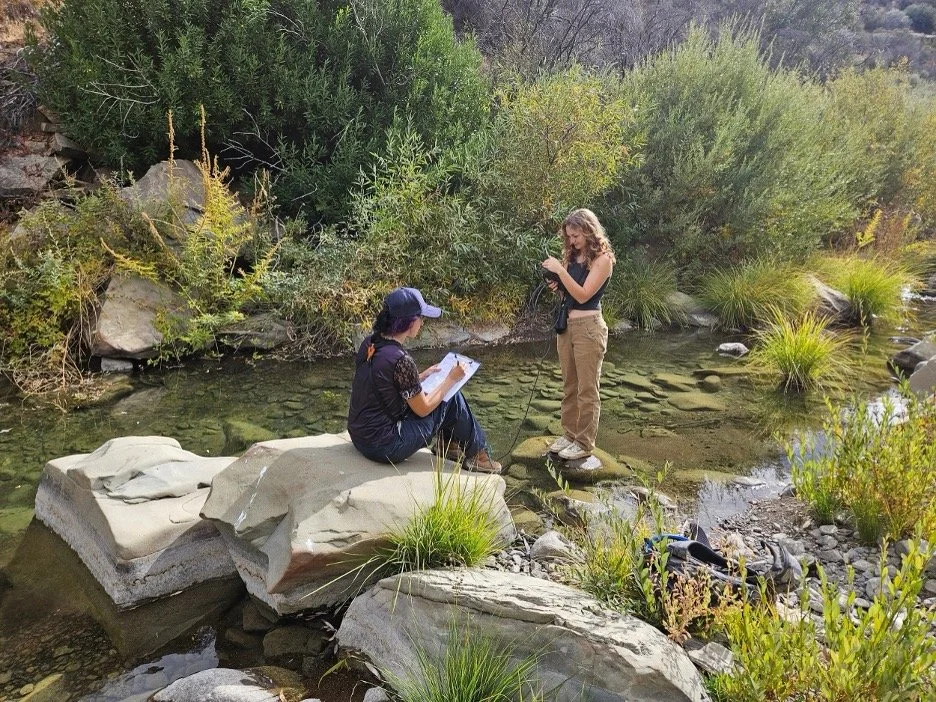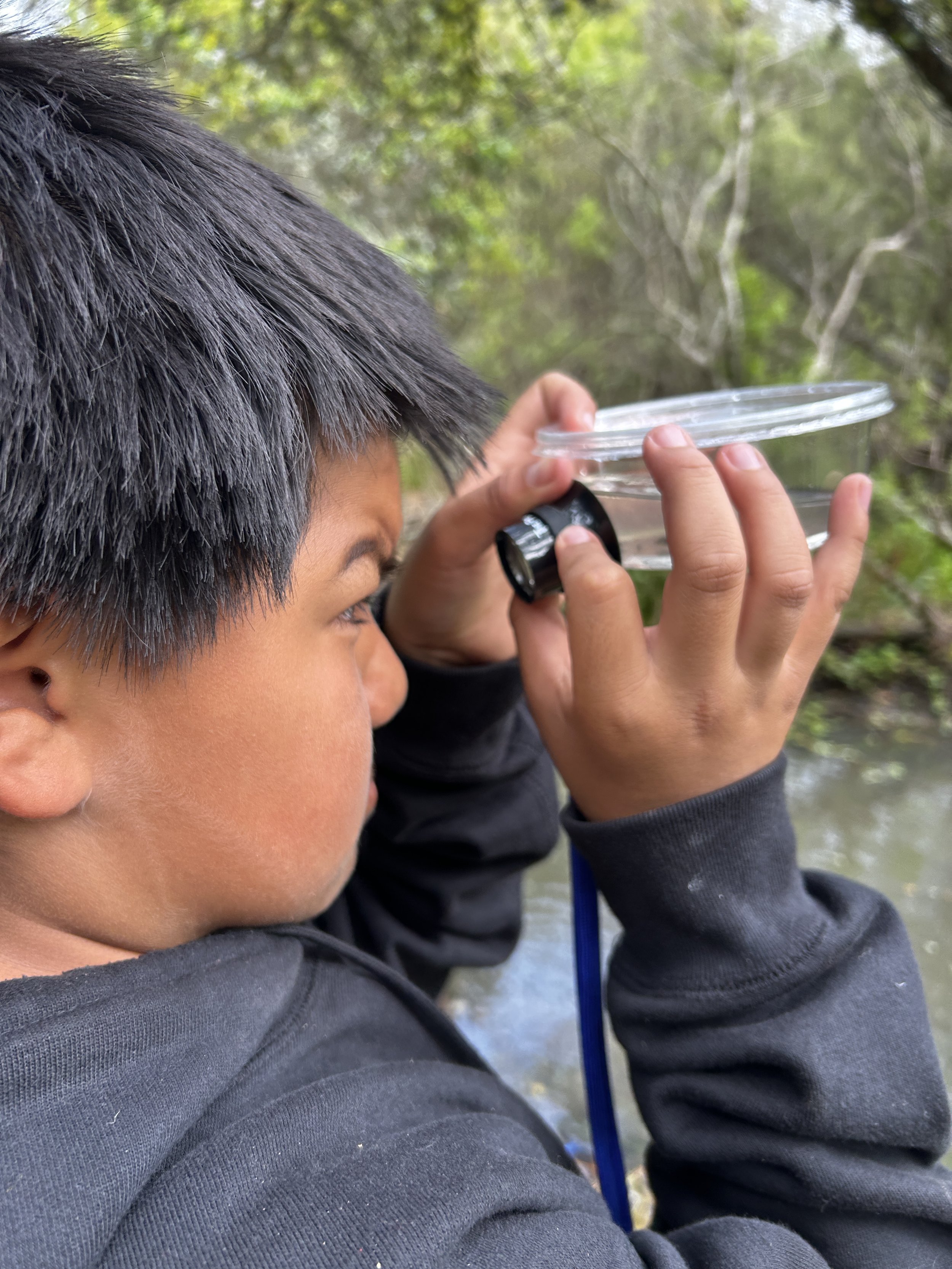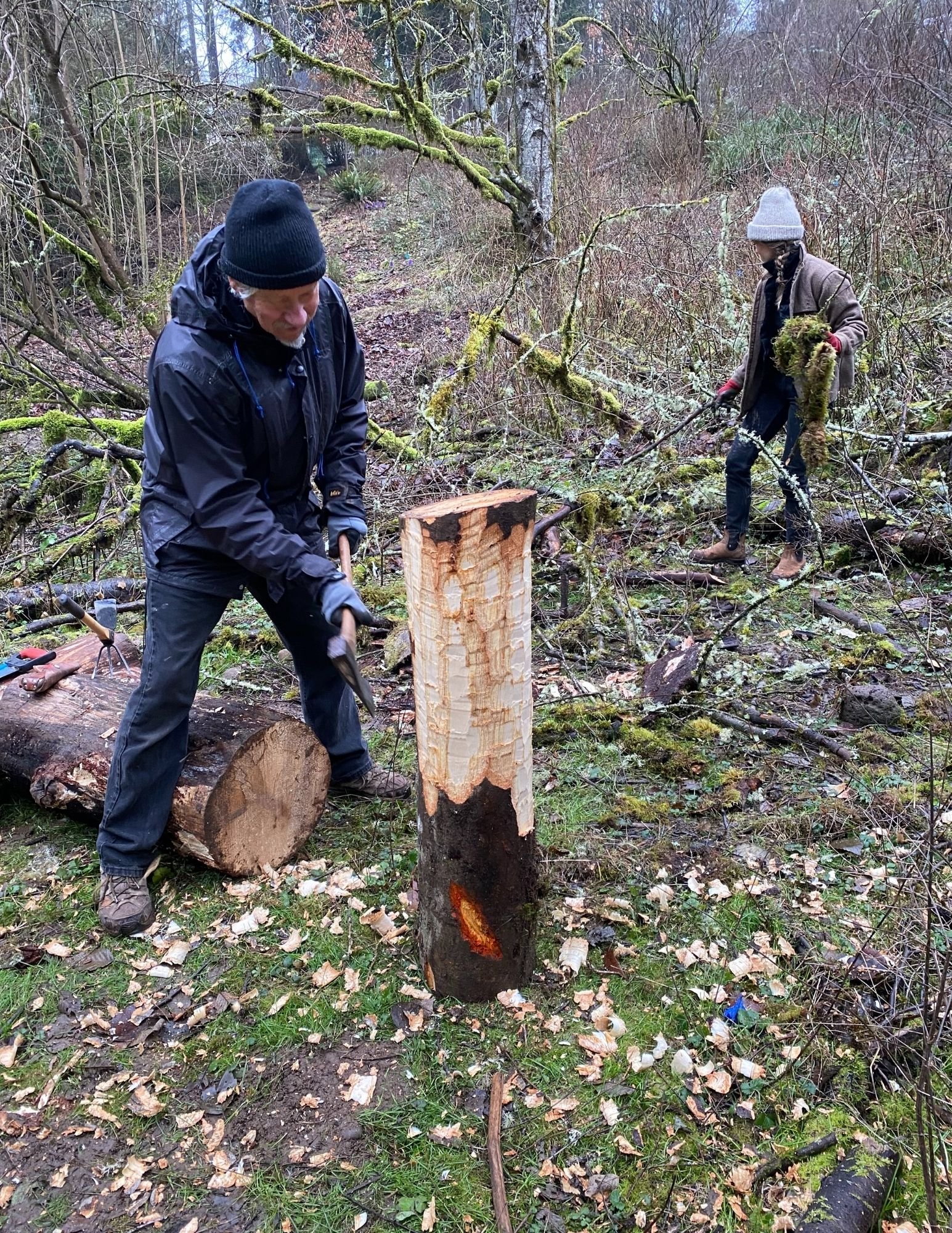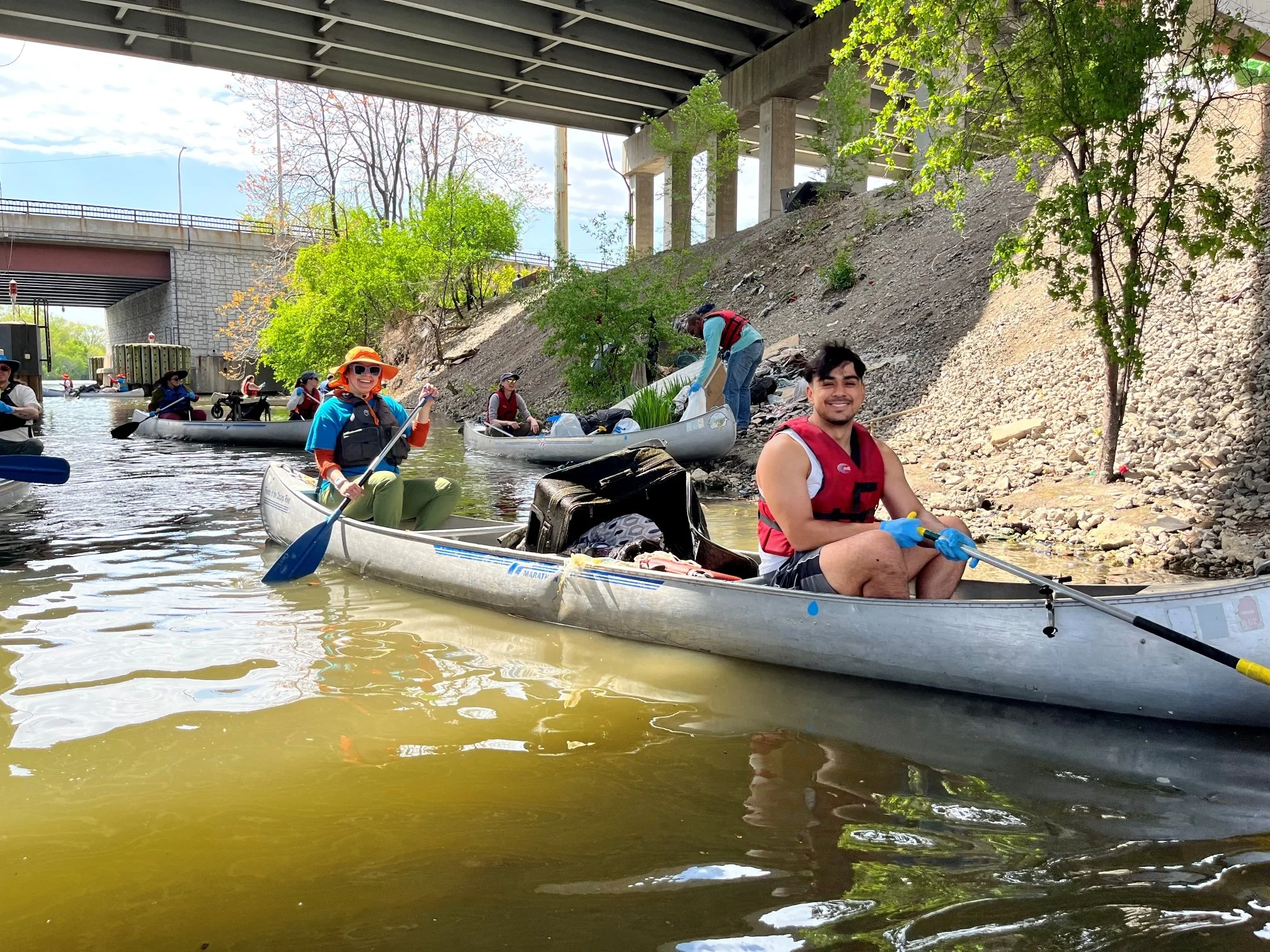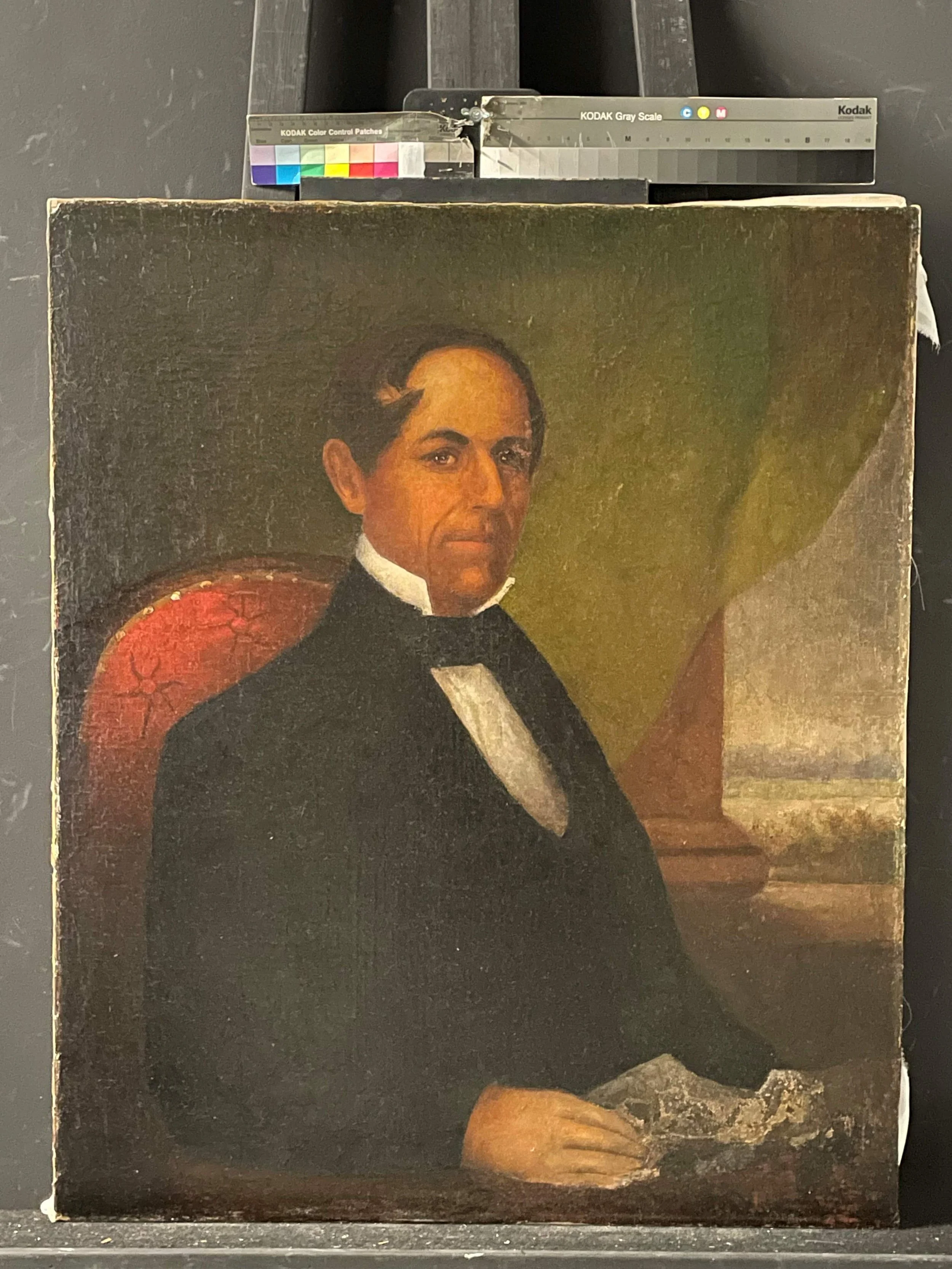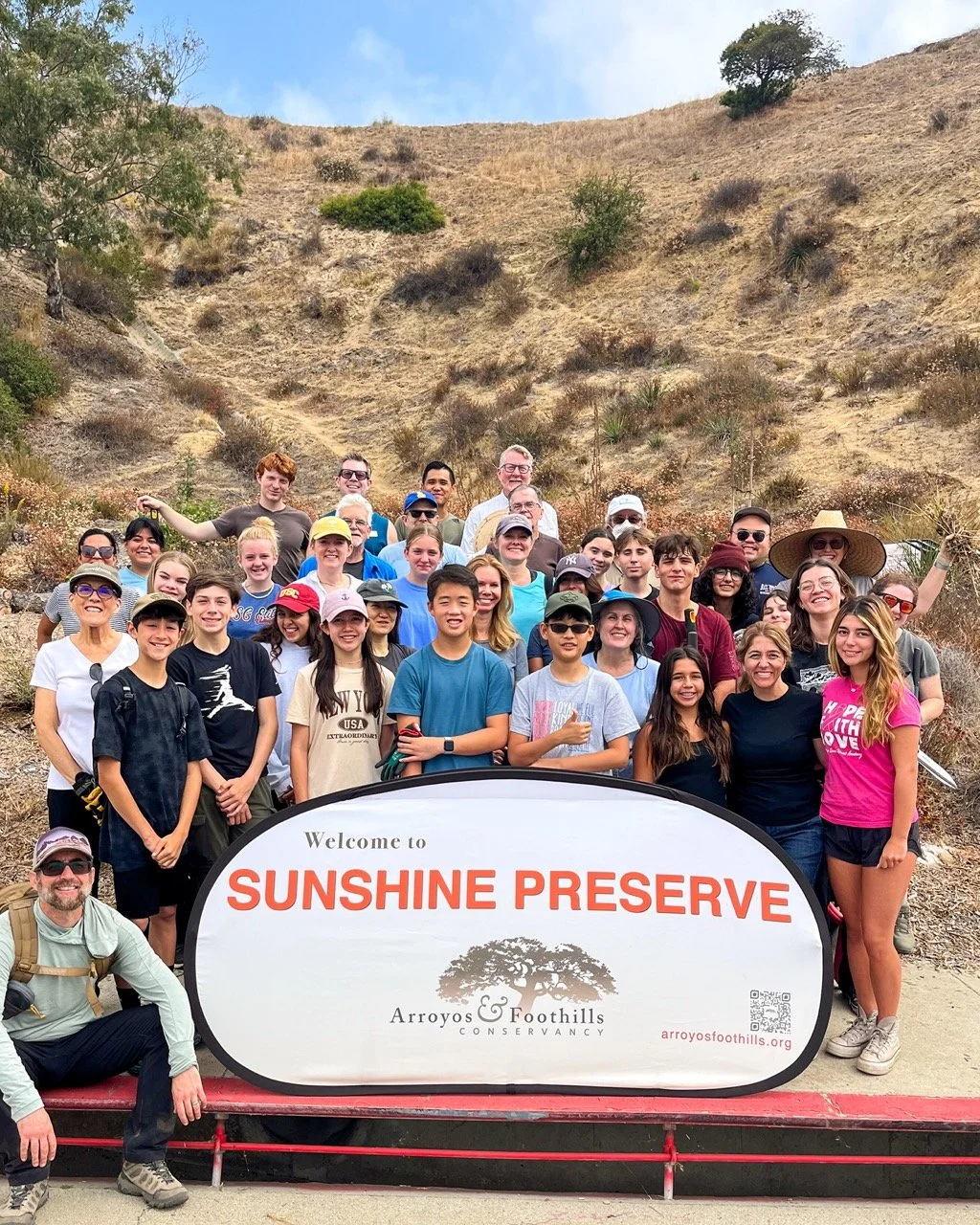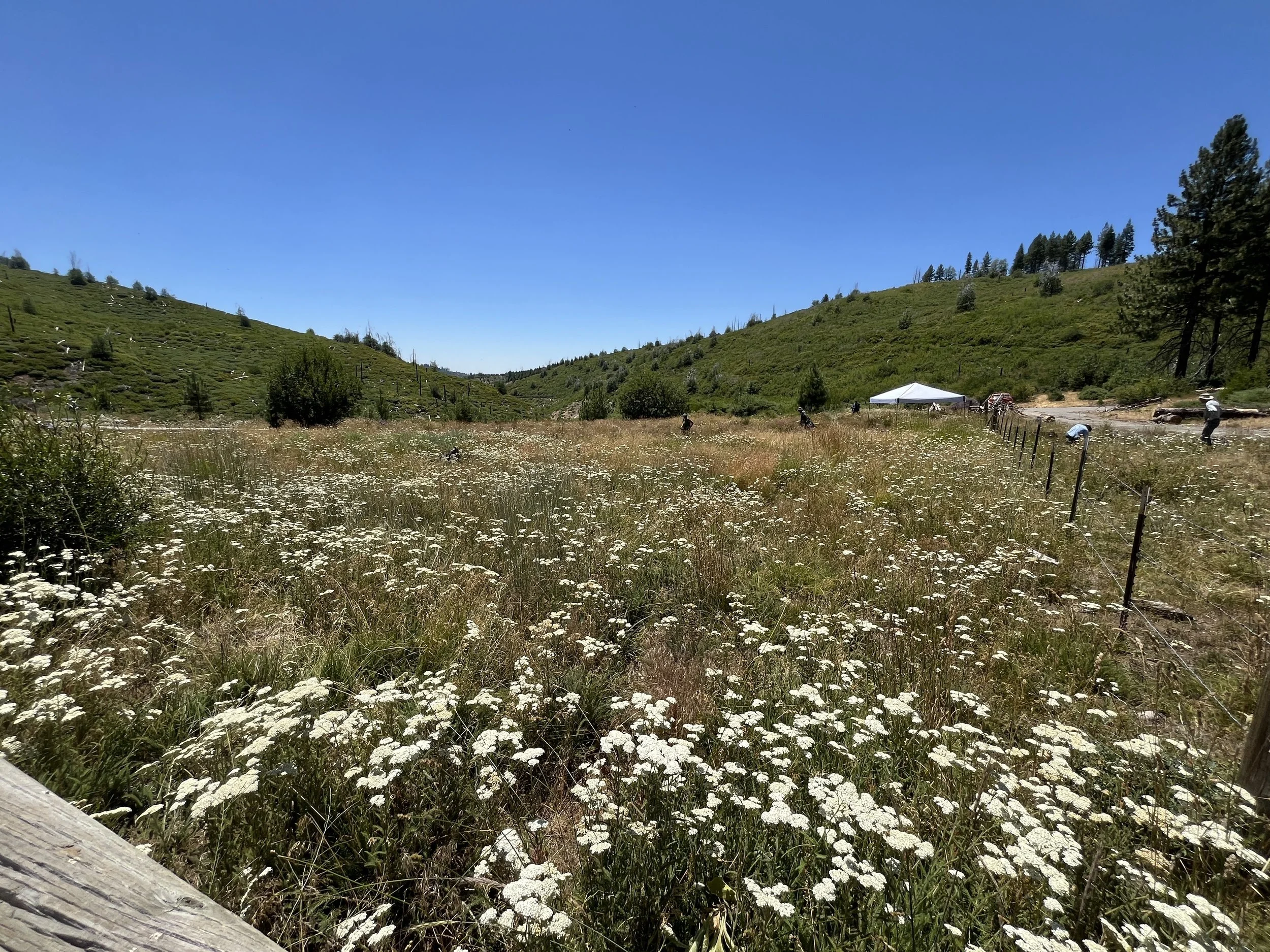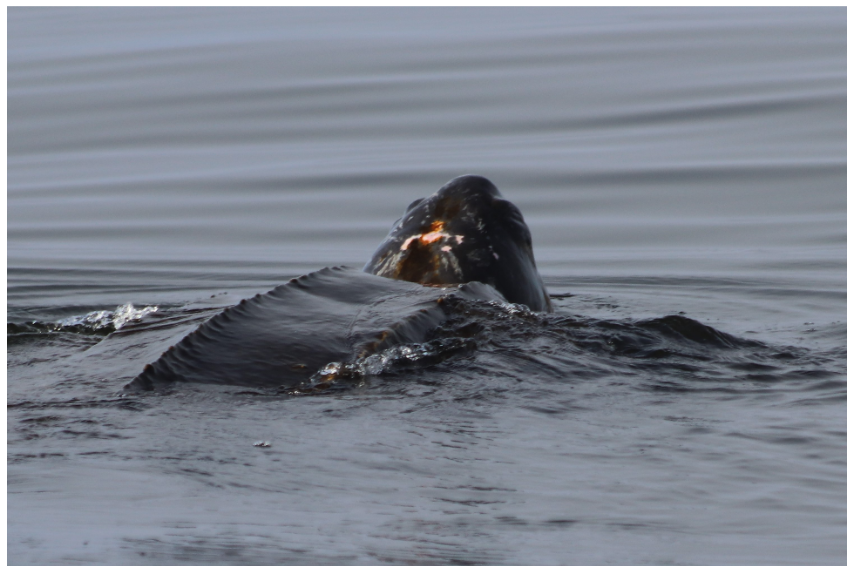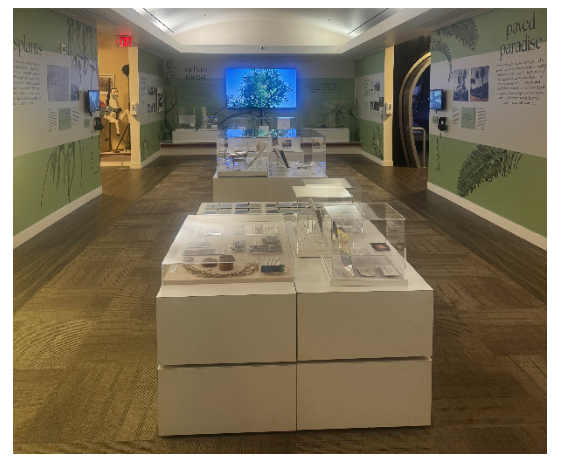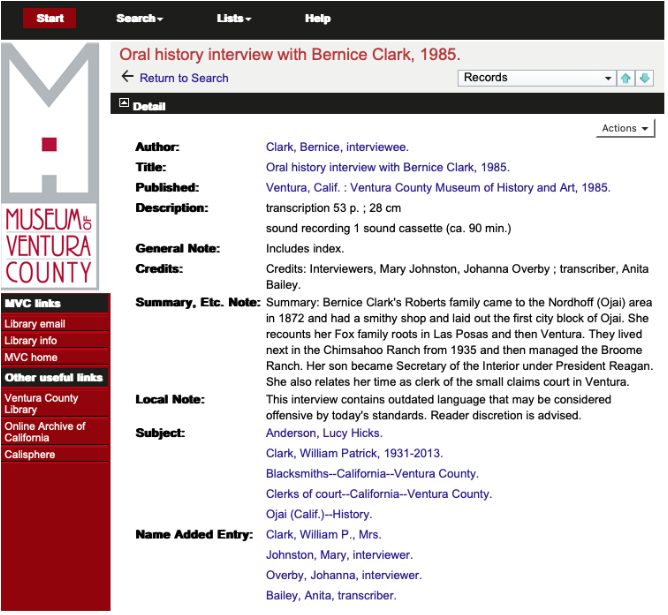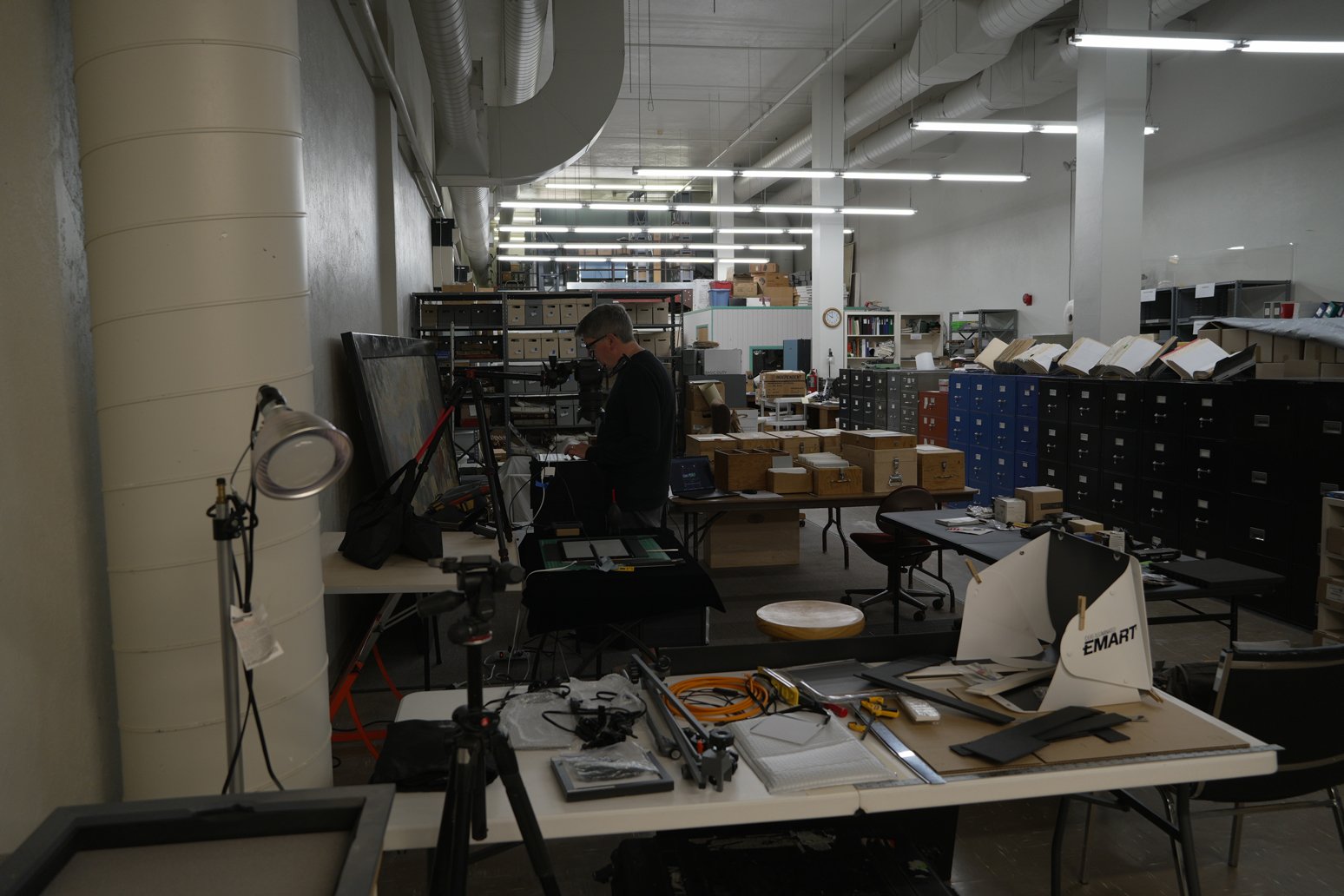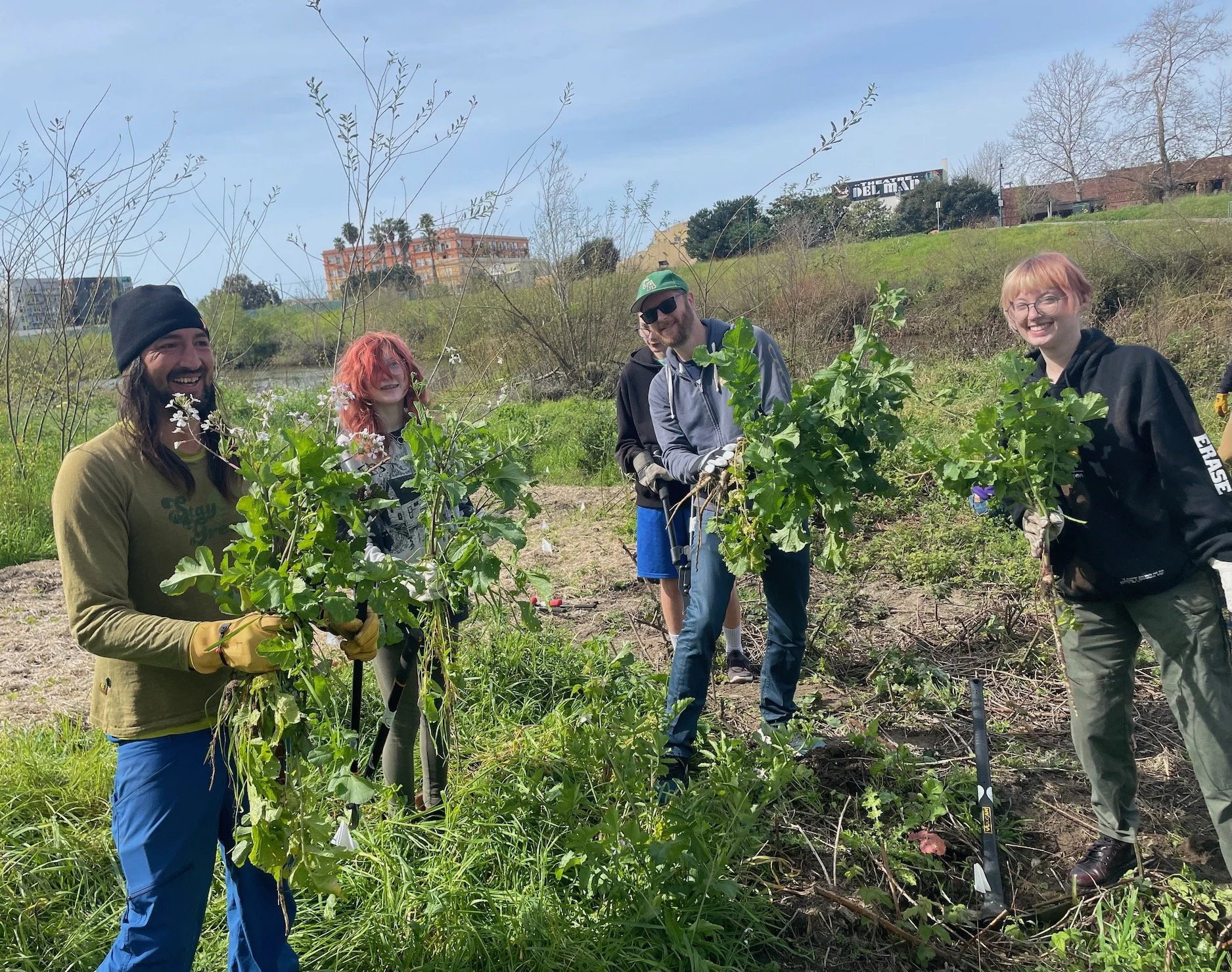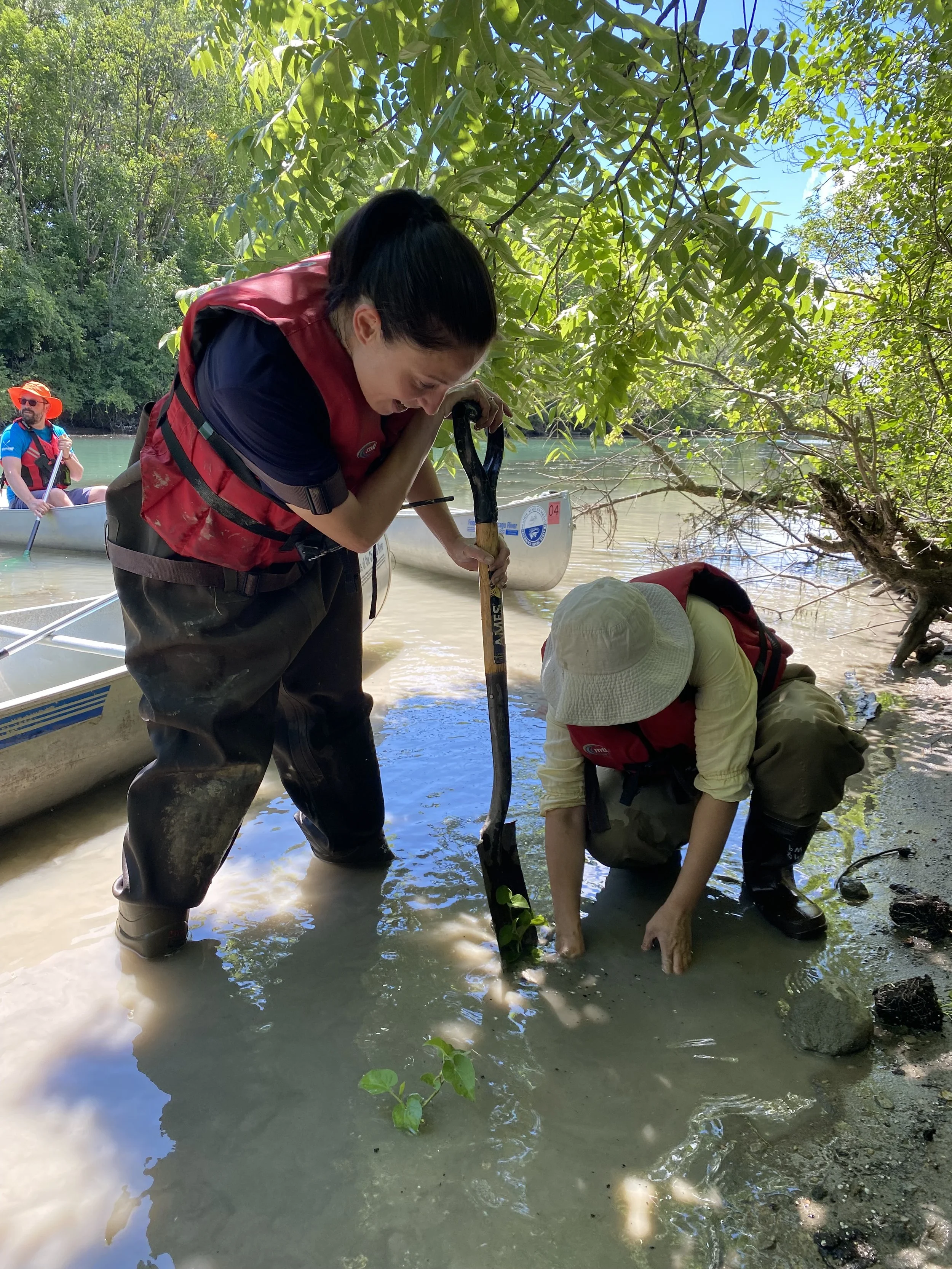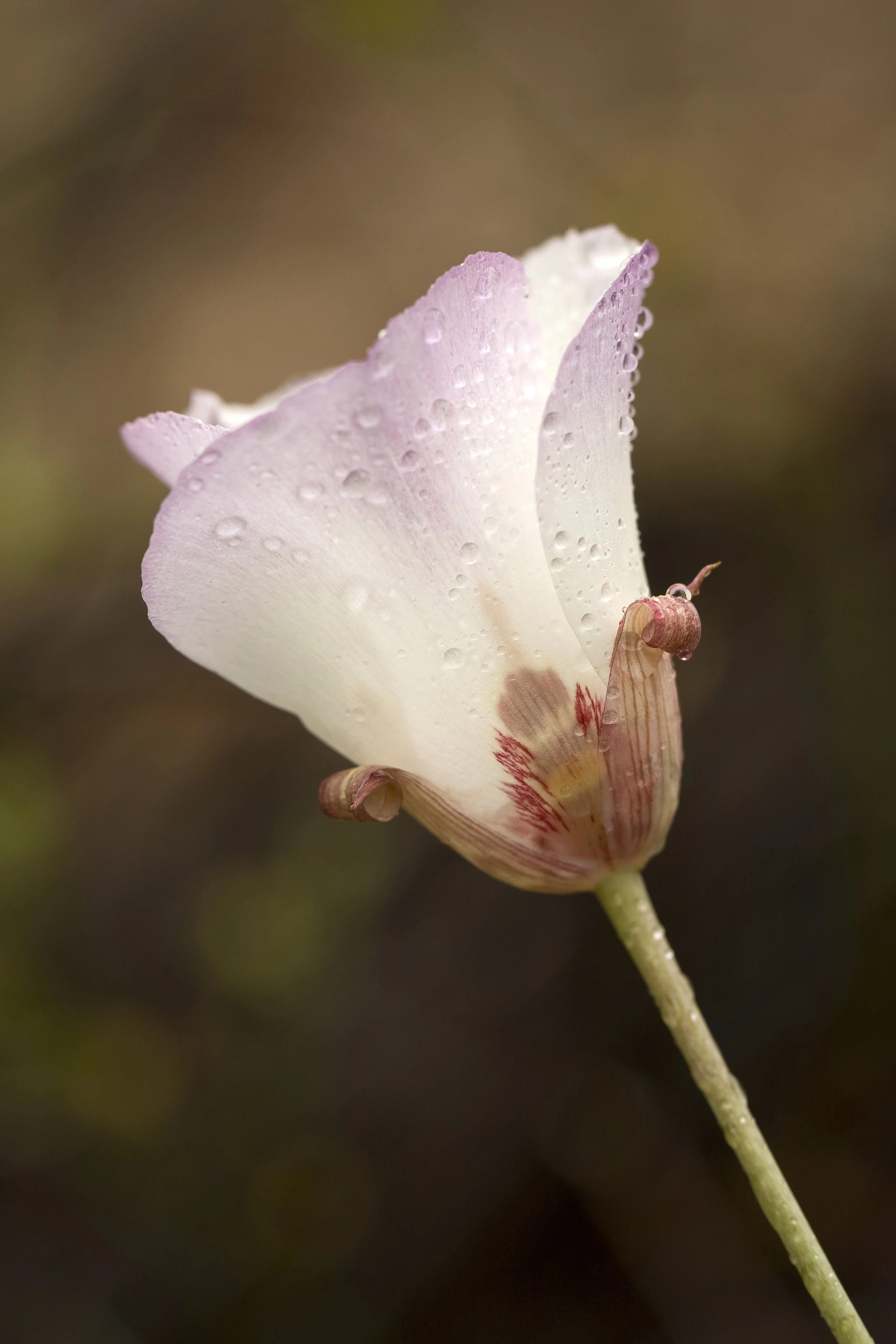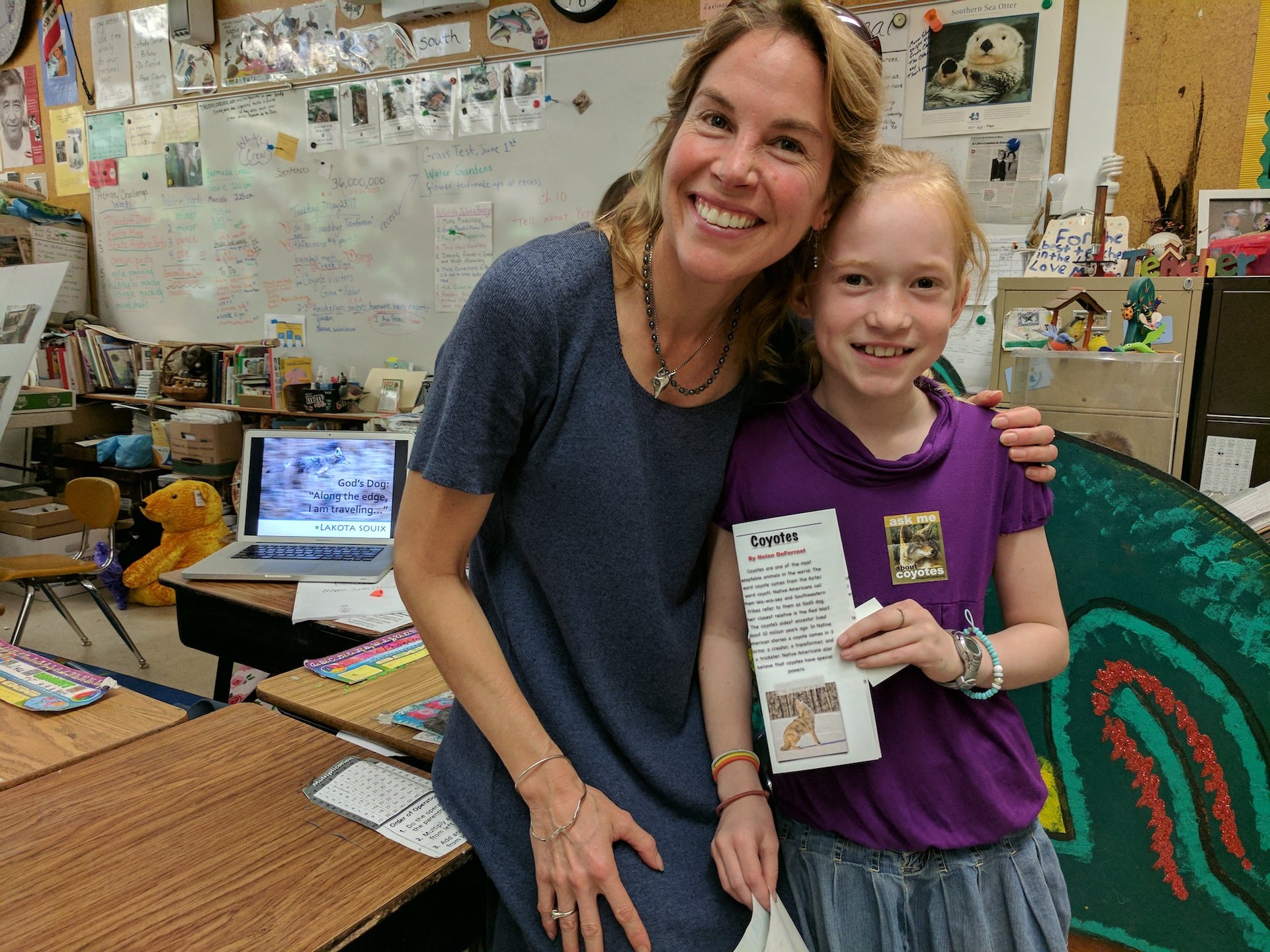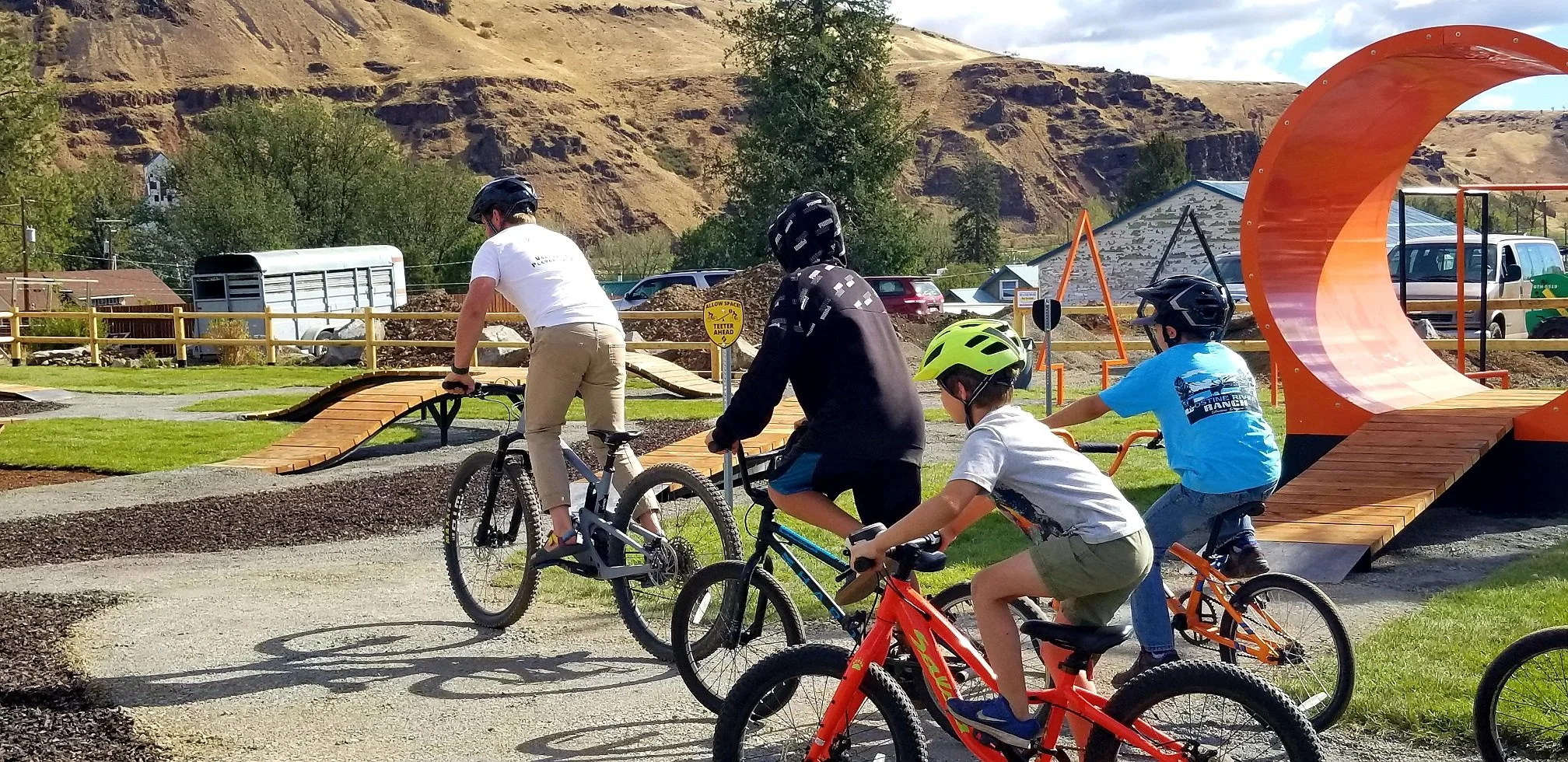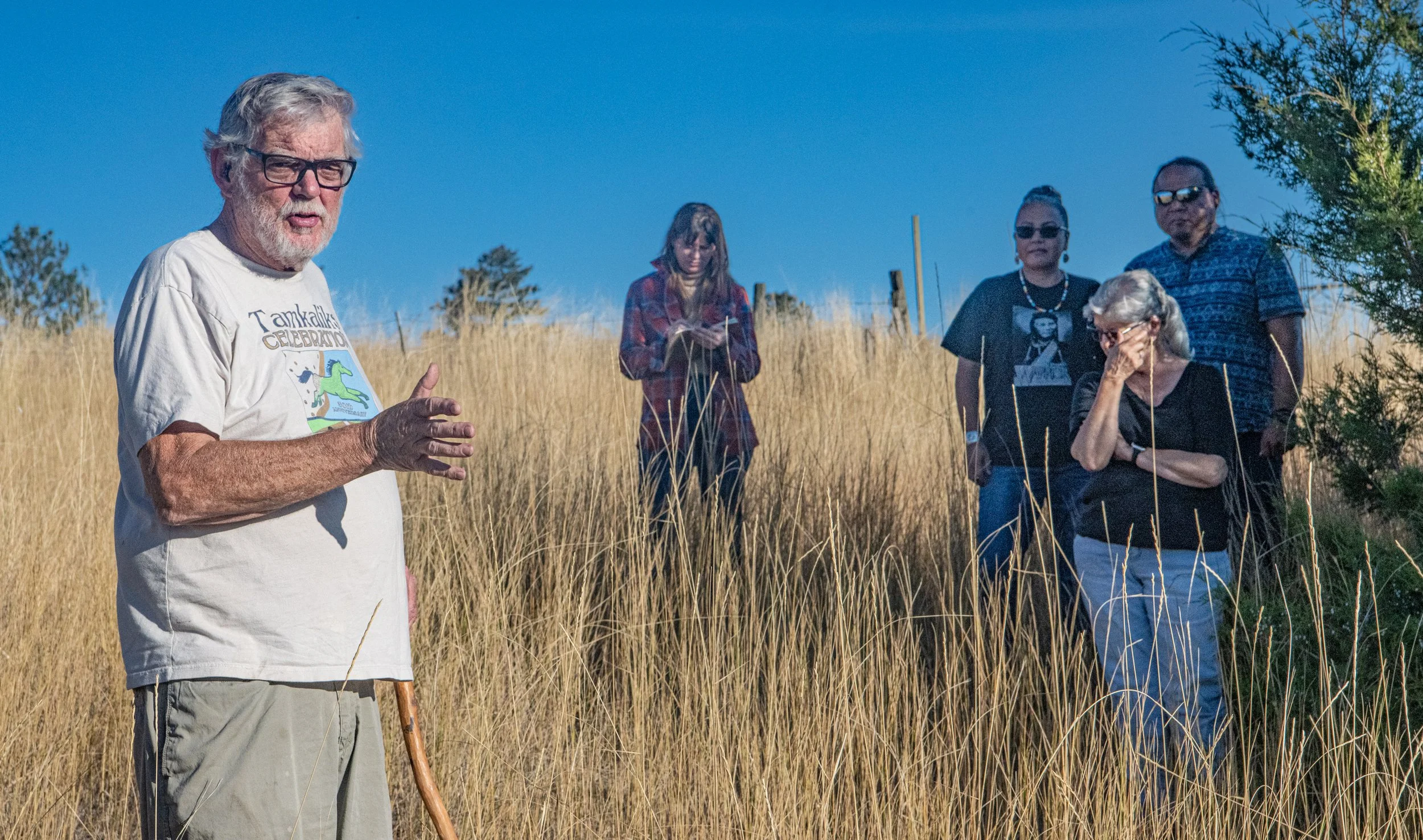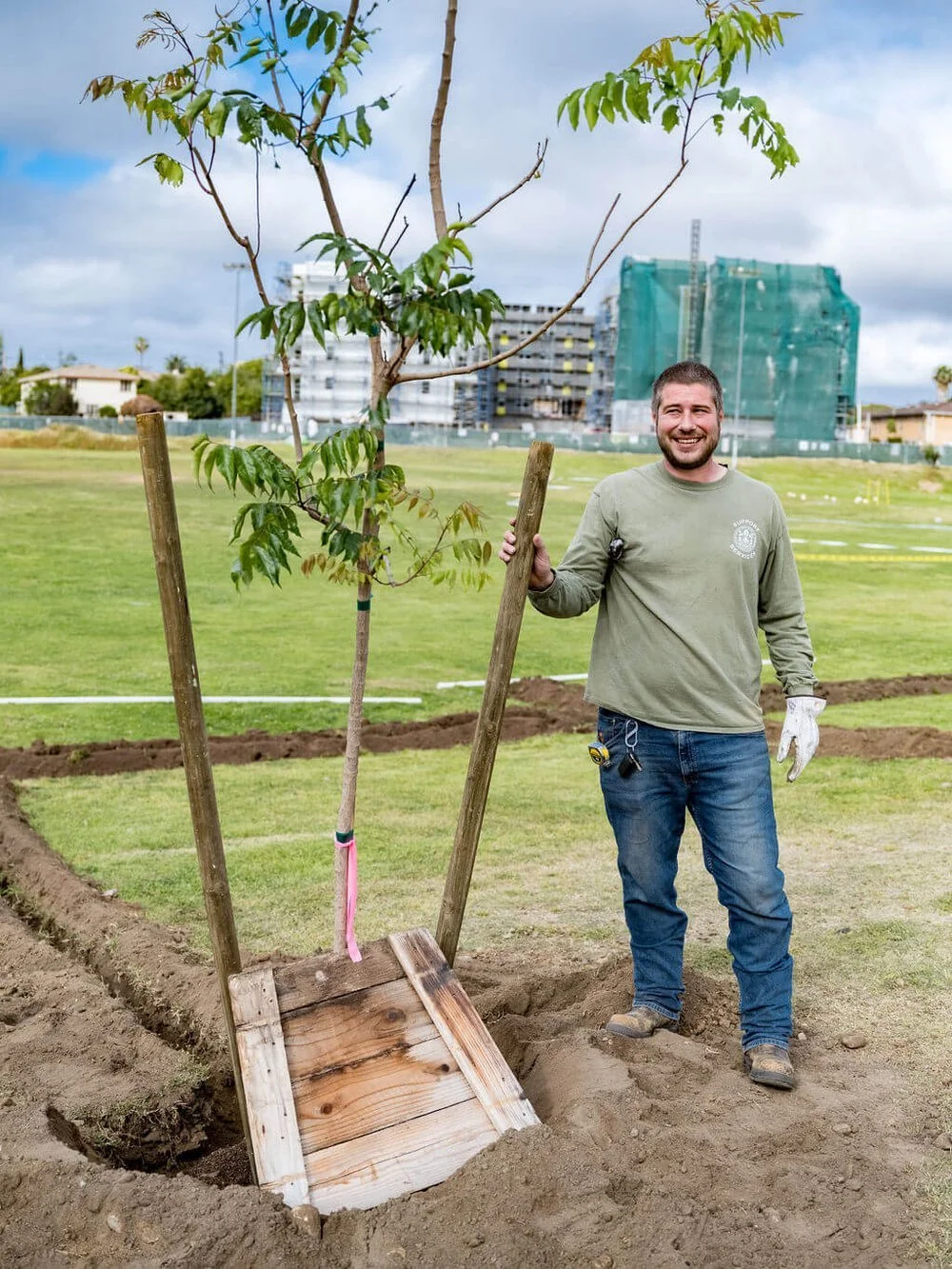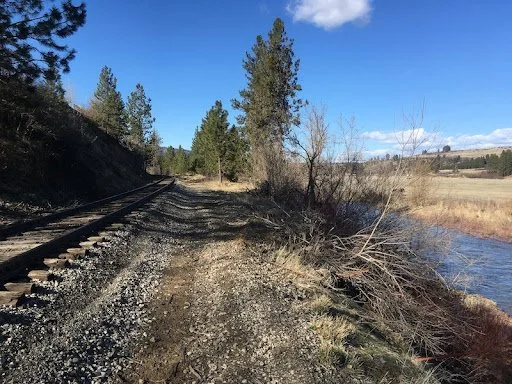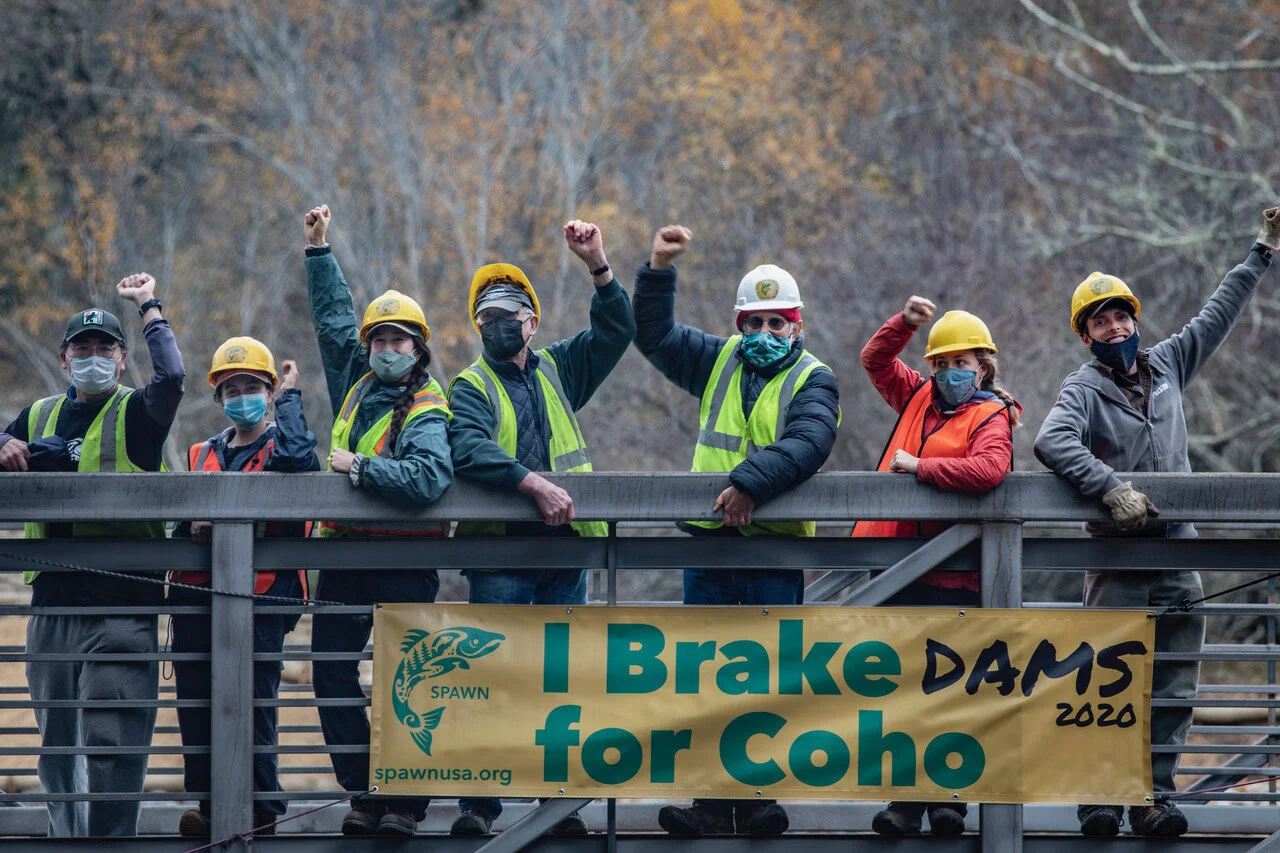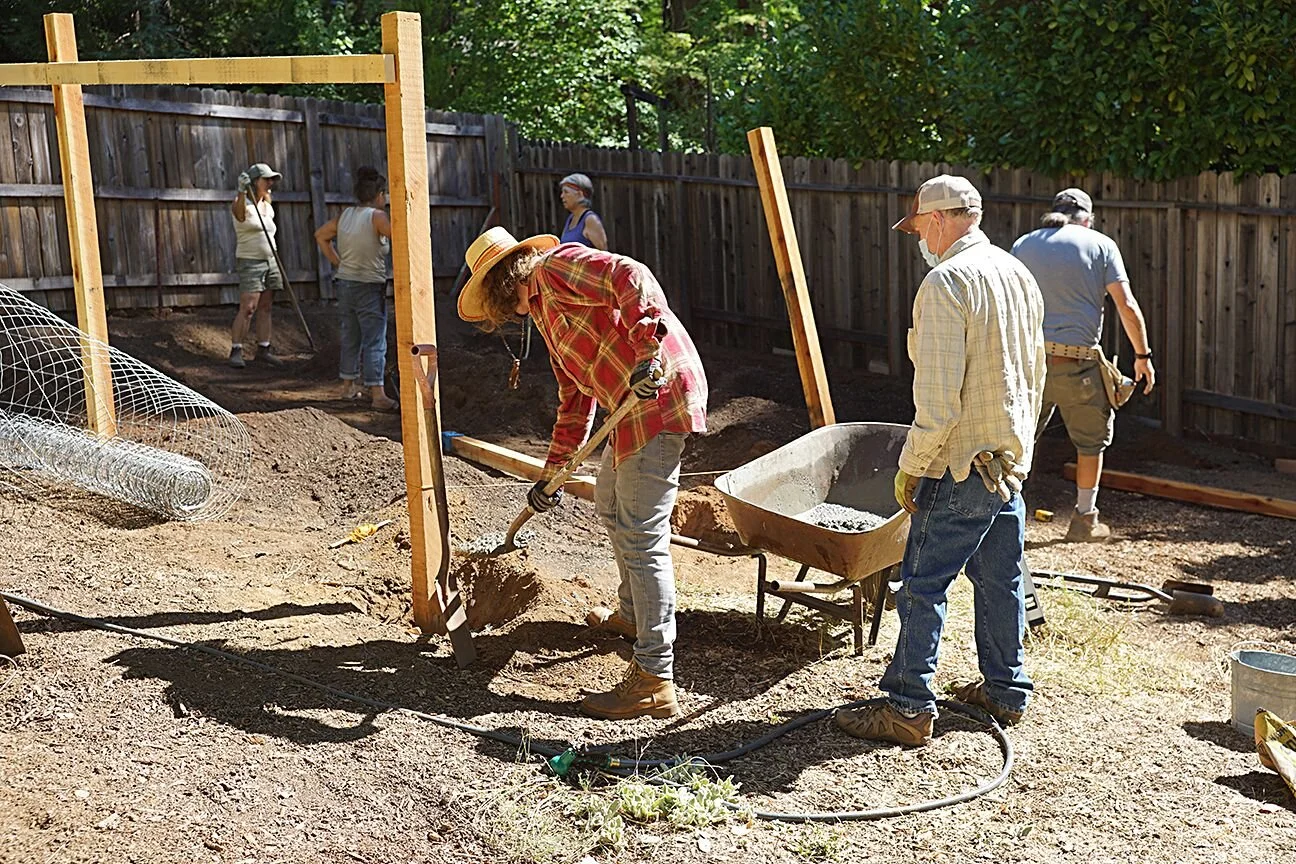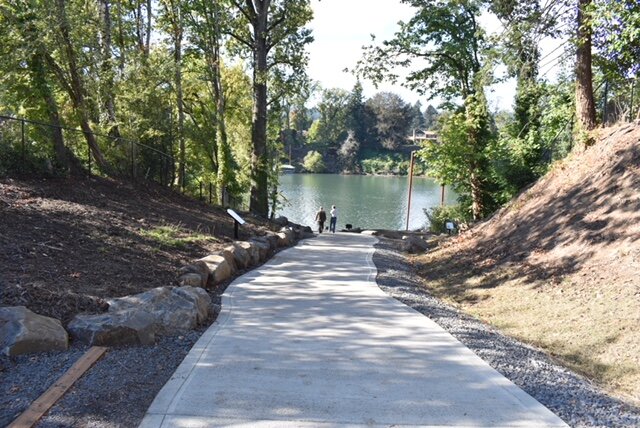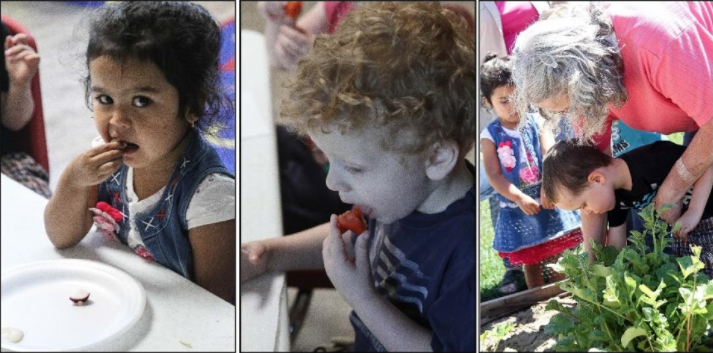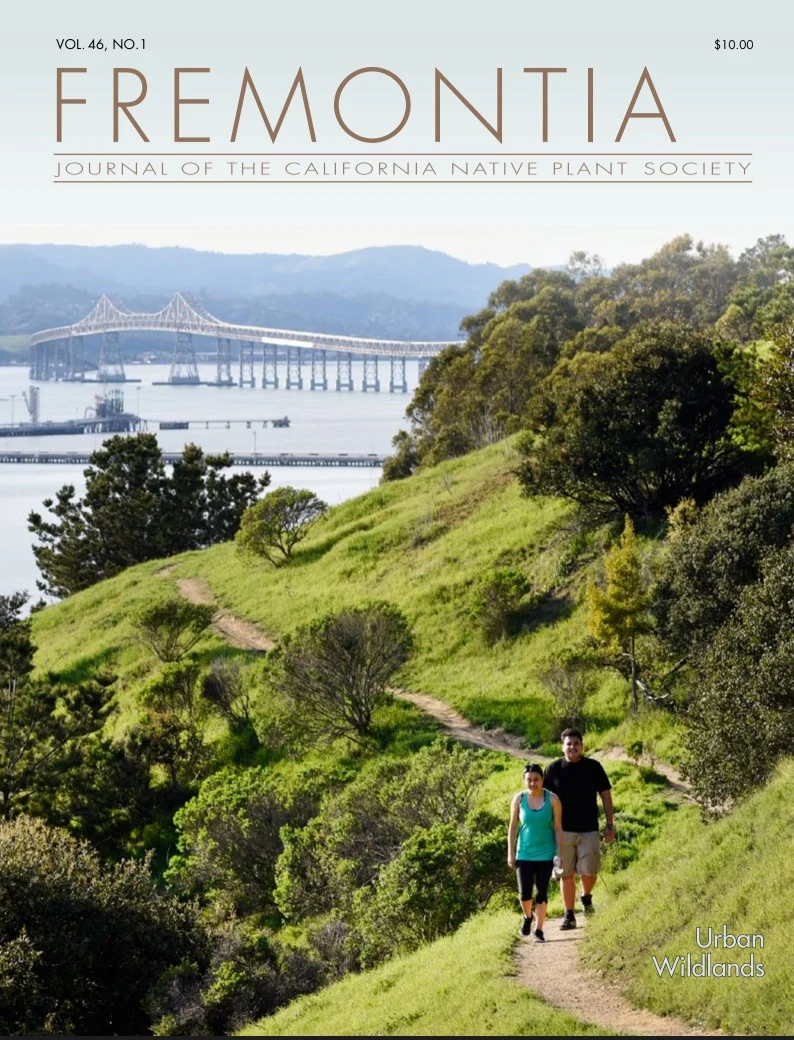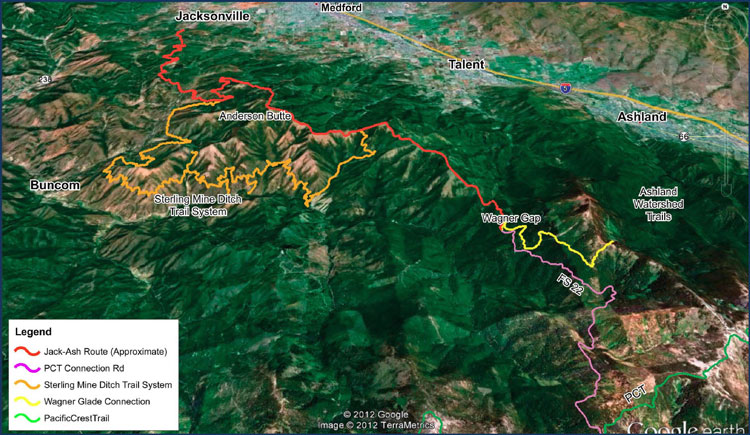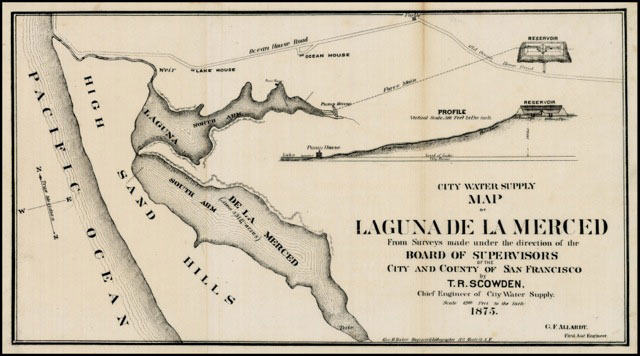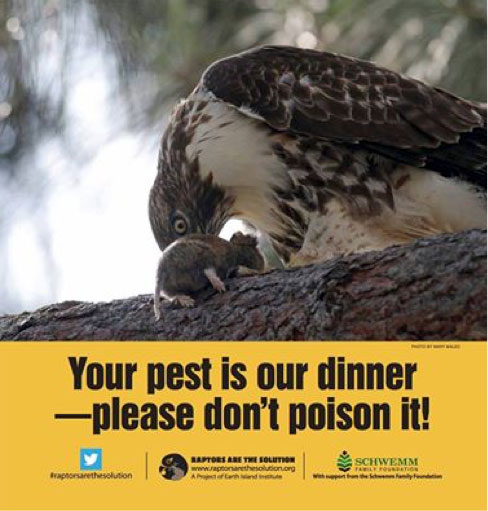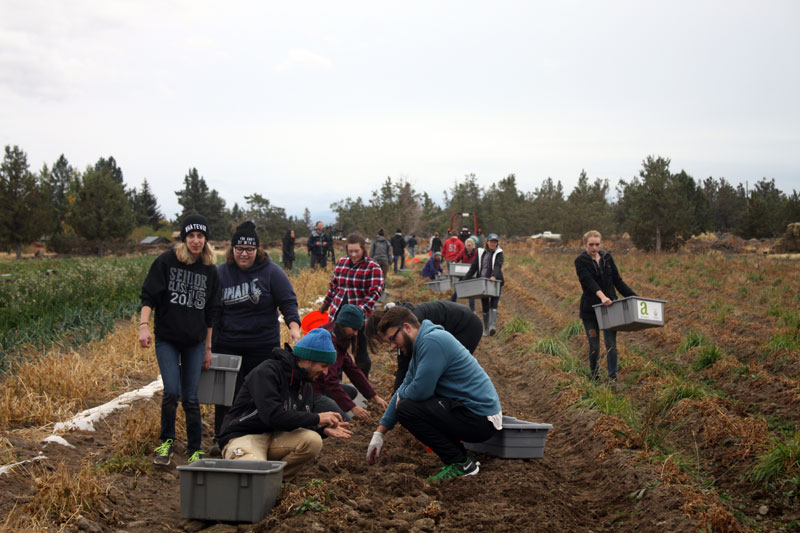2024
This Friends group has been working for over 40 years to gain permanent protection for sensitive lands within the scenic area of the Columbia River Gorge in Northern Oregon. With help from the SFF, they have continued their efforts to remove some of the top 10 most invasive weeds in the gorge while planting a variety of native grasses, wildflowers, shrubs, and tress.
Wishtoyo works to preserve the Native American Chumash culture of Southern California and reconnect people to the Earth in the way of the ancestors. The Schwemm Foundation has funded two years of a project that trains students, many from underrepresented populations, in methods of ecosystem sampling techniques and advocacy within the Santa Clara watershed. The collected data are used for monitoring and conservation purposes, and for this project SFF provided funds to purchase needed sampling and monitoring equipment for water quality and ecosystem monitoring.
Elkhorn Slough is a significant wetland ecosystem on the coast of Central California. The historic water flow of the Salinas River and multiple tributaries has been greatly altered by agriculture and development. Significant preservation efforts have resulted in either full protection of wetland habitats or cooperative management agriculture and conservation. The SFF partnered with the Elkhorn Slough Foundation to help restore a portion of the slough by removing non-native eucalyptus trees which take up important freshwater resources. The site is also utilized for a vibrant student program that comprises college students as mentors and teachers for elementary students, many of whom are from agricultural working families.
Funding from the Schwemm Family Foundation supported the final phase of restoration on the first two acres of the Back 5 property, which is slated to open to the public in spring 2026. Grant funds advanced invasive plant removal, native plantings, ecological monitoring, and trail planning to prepare the site for long-term public access and stewardship. Volunteers and students played a key role in restoration efforts, planting 470 native species, conducting BioBlitz surveys that documented more than 130 species, and supporting ongoing habitat monitoring. Partnerships with local organizations and schools expanded educational programming and field-based learning, with 11 field trips serving 334 students in spring 2025 alone. By restoring habitat while building pathways, signage, and educational materials for the future public trail, the project is creating a vibrant, accessible outdoor space that will support community engagement, ecological resilience, and environmental learning for years to come.
Funding from the Schwemm Family Foundation supported Friends’ River Volunteer Stewardship Program (RVSP) in protecting and restoring the Chicago-Calumet River system through hands-on community engagement. The grant helped expand restoration workdays, instream planting events, and public paddles across the 156-mile watershed, while supplying materials for canoe-based cleanup and habitat activities led by 71 volunteer guides. In 2025, Chicago River Day welcomed a record 2,800 volunteers at 92 locations, with participants removing litter, mulching trails, pulling invasive species, and collecting an estimated 15 tons of trash. Volunteers also installed 1,572 native plants along riverbanks to improve habitat and resilience. By introducing thousands of new stewards to the river and deepening place-based conservation efforts, RVSP continues to build a more biodiverse, climate-resilient river system for the Chicago region.
Funding from the Schwemm Family Foundation supported the preservation and restoration of two rare 1864 oil paintings by Solomon Carvalho, among the oldest surviving works of their kind in California. Displayed for more than a century, the paintings had sustained significant flood, fire, and preservation-related damage and were in critical condition. The museum engaged Fine Arts Conservation Laboratories, Inc. to complete a full restoration, addressing structural damage and restoring original color and detail. The conserved works now reveal previously obscured textures and imagery, preserving an important visual record of early California history. With more than 10,000 annual visitors—including 5,000 schoolchildren—the restored paintings will continue to serve as a vital educational and cultural resource for generations to come.
Funding from the Schwemm Family Foundation supported habitat restoration at Sunshine Preserve through the removal of highly flammable, non-native trees such as eucalyptus and paperbark, which inhibit native plant growth and provide limited habitat value in Southern California. Professional crews removed seven invasive trees, and much of the material was repurposed onsite for trail lining, seating, and wildlife habitat. Friends of Sunshine Preserve also led monthly volunteer restoration events, engaging 10–40 community members at a time in removing invasive plants and planting native species. Grant funds provided essential tools and supplies that expanded volunteer capacity and strengthened ongoing stewardship efforts, helping restore a more resilient, diverse habitat that supports local wildlife.
The San Diego River Park Foundation's mission is to conserve the natural and cultural legacy of the San Diego River through the creation and stewardship of parks, trails, education centers, and open spaces along its 52-mile pathway. Funding from the Schwemm Family Foundation was used to complete restoration of the Lillian Hill Preserve by supporting staff time for volunteer event coordination along with the acquisition of materials necessary to remove remaining debris. Schwemm Family Foundation funding also enabled the organization to comprehensively catalogue, and plan for the future removal of, additional hazardous materials.
The Central Sierra Environmental Resource Center works to defend water, wildlife and wild places across the Northern Yosemite region. Funds provided by the Schwemm Family Foundation were used to restore the highly degraded Quail Meadow habitat by erecting a fence to exclude cattle from entering the meadow and removing a huge number of invasive weeds that were outcompeting native plants.
The Foundation’s funding helped Upwell Turtles provide critical information about the distribution, abundance, and migratory movements of leatherbacks. The goal is to identify areas of leatherback concentration and document the timing of leatherback arrival and departure off the US West Coast, in support of leatherback entanglement risk assessments due to west coast fisheries.
The Foundation supported the launch of “Roots and Branches: A Tree’s View of Santa Monica,” an exhibition commemorating the Santa Monica’s 150th anniversary. The display delved into the intricate relationships between trees, urban development, and Santa Monica’s cultural and environmental history, highlighting how nature and humanity have coexisted—and occasionally conflicted—over the centuries.
This project supported the La Jolla Historical Society’s initiative to strengthen collections stewardship through the comprehensive cataloging and digitization of over 170 3D objects and paintings. The work involved researching, cataloging, photographing, condition-reporting, and making the objects accessible to the public, via their website.
This project funded the digitization of nearly 400 oral histories which the museum had started collecting during the 1950’s. They tell the story of Ventura County from the late 1800’s through the present. The transcribed histories are summarized and searchable by keyword and freely accessed via their website. Important topics include the development of medicine in the county, the St Francis Dam disaster of 1928, the evolution of agriculture, the experiences of minority residents, and the history of the petroleum industry.
2023
The Schwemm Family Foundation (SFF) funded the International Rescue Committee (IRC) in San Diego to enhance community garden and nutrition education programs, addressing food insecurity among underserved communities. Through two impactful workshops, IRC educated refugees, immigrants, and low-income individuals on water conservation and food nutrition, fostering knowledge-sharing and community collaboration. The program also improved 12 garden plots and added a new one, benefiting 26 gardeners with better tools, soil, and infrastructure. Overall, this initiative exceeded its original goals, positively impacting a diverse community while promoting sustainable practices and enhancing the quality of life for participants.
The Litter Free Supply Stations program, led by Friends of the Chicago River, aims to reduce plastic pollution in local waterways by providing community-hosted stations stocked with tools and resources for self-directed cleanups. Since 2023, the program has expanded to several new locations, strengthened community partnerships, and introduced multilingual toolkits to improve accessibility. With the addition of a full-time events coordinator, Friends has scaled the program to meet its growing popularity, despite challenges such as inconsistent usage data. This initiative highlights a community-driven solution to address local plastic waste, achieving significant environmental and educational impacts.
The Wishtoyo Foundation’s Watershed Monitoring Internship Program supports Indigenous and politically marginalized youth in acquiring land stewardship skills. In southern California the Santa Clara River watershed includes historic steelhead habitat that is being protected and restored. This project allowed youth in the program to learn water quality monitoring techniques, collect water quality data, and attend workshops aimed at teaching public speaking and other skills needed to successfully participate in environmental stewardship.
The California condor recovery program includes efforts to monitor condor nests during the breeding season to assess hatching success and chick survival. To minimize impacts to nesting birds the Santa Barbara Zoo established the Nest Guarding Program (NGP) across much of the range of condors in southern and central California. SFF funds contributed to the NGP with funds to purchase optical equipment such as spotting scopes and support their need for wireless transmission of data from remote sites.
The Mattole River Watershed is located in dense, Northern California rainforest. A history of logging reduced much of the timber in the watershed resulting in erosion and increased runoff which diminishes the groundwater supply. A high water table means that groundwater is critical for supporting native fish spawning areas. This project focused on increasing the amount of instream wood features such as check dams to provide habitat for migrating Coho and steelhead.
Less than 1/100 th of original natural prairie lands remains in Illinois, most of the land being converted to farmland or developed for other human uses. Glacial Park Conservation Area is the largest contiguous area of publicly managed land in McHenry County, and this project aimed to convert 21 acres from row crop production to natural prairie grassland. The site supports numerous threatened or endangered species, including the Blanding's turtle, monarch butterfly, and the rusty patched bumblebee. The project also aims to decrease sedimentation into Nippersink Creek, a major recreational waterway in McHenry County, and improve the ability of this area to recharge groundwater, which is where McHenry County residents receive 100% of their drinking water.
This unique organization, out of Klamath Falls, Oregon, is focused on enhancing, preserving, and educating about the local wetlands utilized by migrating waterfowl and many other native species. To aid in this effort, a grant from the SFF was used to build a remote-controlled solar pump to help regulate the water level of a 2.5-acre pond. The pump was ‘deployed’ in October of 2023 and appears to be successfully regulating/enhancing this important wetland habitat.
The SOHS collects, preserves, and shares a variety of artifacts to generate an appreciation of regional history for present and future generations. An important part of this effort, and one that the SFF has been honored to help with, has been the digitization and preservation of over 6,000 glass plate negatives made by pioneer Western U.S. photographer Peter Britt from the mid-1850’s through the end of the 19th century. This unique collection, which will be publicly available and researchable, will provide a primary source look into what life was like for ordinary citizens in Southern Oregon during the early years of its pioneer history.
This organization, located in the greater Los Angeles area, is dedicated to educating about the connection between agriculture, health, and the environment. One way they are doing this is through the development of grow gardens at a variety of inner-city schools. To this end, funding from the SFF has been used in the building of a series of raised garden beds that are being used to help teach a variety of organic gardening techniques to students of all ages.
The Blue Zones Project is part of a multi-sector partnership in Klamath Falls, Oregon, committed to the promotion of healthy communities. The Trail Signage Project, which SFF helped to fund, is aimed at increasing trail utilization through signage and education. The completed signs, installed as part of the Lake Ewauna Trial system, are attractive, easy to understand, and certain to be helpful towards the goal of helping people be more active outdoors in a safe and enjoyable manner.
The Algonquin Garden Club requested funds to restore a historic downtown natural spring in the downtown area of Algonquin. The fountain area includes signage and photographs explaining the significance of this freshwater source for wildlife and local residents during the 1700 and 1800’s and its significance to the town’s history.
The Gresham Historical Society preserves and shares the Gresham Oregon community’s past to enrich its present and future. The Schwemm Family Foundation provided funds to the Society to enable them to digitize and make available online to the general public over 2,500 items of historical significance contained in their collection.
The Coastal Watershed Council's River Health Day Program brings together volunteers from the local community to plant and maintain native seedlings along the banks of the San Lorenzo River to increase biodiversity and revitalize the river ecosystem. The Schwemm Family Foundation partnered with the Coastal Watershed Council to bring out over 400 volunteers who planted over 300 hundred different native plants in 21 separate seed plots along the river.
The Wetland Conservancy’s mission is to conserve and steward Oregon’s wetlands in partnership with communities. Funds provided by the Schwemm Family Foundation were used to organize multiple restoration workdays at the Minthorn and Hearthwood wetlands where community volunteers conducted scientific surveys and performed wetland restoration and cleanup.
Klamath Trails Alliance
Museum of Ventura County
Oregon Rail Heritage Foundation
2022
Friends of the Chicago River's grantee project aims to enhance the ecological health of the Little Calumet River and North Shore Channel through native plant installations during their Paddle and Plants events, addressing the lack of native vegetation in these areas. This initiative supports local ecosystems, mitigates flooding impacts, and promotes community engagement in environmental stewardship, with funding from the Schwemm Family Foundation facilitating plant purchases and essential supplies.
Focused on enhancing resilient ecosystems along the central coast of California, the Wild Farmlands Foundation is dedicated to the regeneration of the landscape, while at the same time, supporting the area’s current and next generation of farmers and ranchers.
Wolf Creek, located in the Sierra Nevada foothills of California, has been a working alliance for over 20 years with the dual goals of preserving and protecting the local watershed while increasing public access to the creek and adjacent hillsides. As part of this effort, and with help from a SFF grant, Wolf Creek recently created a series of walking and biking tours within the watershed.
White Buffalo (WB), located near Santa Barbara California, is committed to land stewardship practices that support biodiversity, water and soil resources, and human health. WB has recently partnered with the Santa Ynez Band of Chumash Indians in the planning and implementation of a series of trainings focused on the building of resilient gardens. With the help of a SFF grant, these gardens are today being managed by members of the Ynez Band to grow a variety of food, fiber, and medicinal and ceremonial plants.
The Rare Plants Inventory - RPI - is a database of information regarding all rare and endangered plants in California. To assist planners, consultants and resource managers, the SFF funded an effort to include all existing threat data for each species in the RPI. The app to use the RPI is free and available to everyone, allowing all users to have access to common information regarding current threats to native plant species and populations. CNPS Inventory of Rare Plants | California Native Plant Society.
To assist Project Coyote in their work protecting wild carnivores, the SFF helped fund the production of two short films.
Occidental Arts and Ecology is a non-profit organization working to develop sustainable and inclusive landuse practices. The SFF supported the OAEC in efforts to create and enhance wildlife habitat through invasive plant removal and habitat enhancements.
Building Healthy Families, a family support organization serving Eastern Oregon, spearheaded an effort to construct a bicycle park features rollers, tunnels, pump tracks, rock gardens and a wide number of areas for kids to ride bikes, scooters, skateboards and rollerblades. Funds provided by the Schwemm Family Foundation were used for the purchase of several features in the playground, including bike teeter totters and a snake tunnel, which help to make the park a unique green space for the children of Wallowa County to enjoy.
The Farm to School program partners with local schools in the greater Los Angeles area to build farm labs and outdoor learning gardens for students to have access to project-based outdoor learning opportunities. Funds provided by the Schwemm Family Foundation went to refurbish the culinary learning garden at Arroyo High School, supporting the AHS students taking part in this program to learn to grow their own organic food, and to cultivate and experience the setting of urban green spaces at their school.
The Foundation’s funding helped the Museum of Ventura County research, create and disseminate a scholarly journal, titled Bootleggers, Rumrunners, and Blind-Piggers: Prohibition in Ventura County. The Journal tells the story of the impact of Prohibition on Ventura County residents. The journal complemented the Museum’s major history exhibit All That Glitters is not Gold, which grew out of the same historical research into the county’s history during the 1920’s.
The Josephy Center teamed with the Wallowa History Center and Nez Perce elders from three reservations, to document and explore the places and occasions of first meetings of white settlers and the Nez Perce Indians—often in the Oregon Wallowa Country. Local historians and tribal elders, met to examine the “Confluence” of two rivers where Whites and Indians met first met.
The High Desert Museum and Oregon Black Pioneers successfully collaborated to develop fourth grade classroom resources that center Black experiences on the Oregon Trail and Black exclusion in Oregon.
2021
Formed in rural Southern Oregon in 1992, the APWC has evolved to become a national model for agency-community collaboration and innovation. One of their newest collaborative projects, Grow Youth, combines riparian restoration with monitoring education at a popular county park. In 2021, funds from the SFF were used to support this program in their efforts to enhance a section of the Applegate River for fish, beaver, and other wildlife while involving students in monitoring the removal of a variety of invasive species and the growth and survival of numerous native plants.
This organization makes a unique urban environment - the Chicago river - more accessible and scenic for the benefit of those living or visiting downtown Chicago. Through a sustained, multi-year series of partnerships with private and public entities, Urban Rivers creates programming and experiences to help people of all ages experience something familiar in a new way. The Schwemm Family Foundation was proud to work with Urban Rivers to support their mission through funding field trips and other visits near and on the river.
The Minthorn Springs Preserve is a wetland in urban Milwaukie, Oregon home to birds, mammals, snakes, salamanders, butterflies and dragonflies. The Schwemm Family Foundation partnered with the Wetlands Conservancy to help fund the Conservancy’s work to reduce non-native species and improve the natural spaces in the 6.52 acre wetlands for use by the public as well as a habitat for the native flora and fauna thriving there.
Endangered California condors continue to face threats in the wild. A factor identified as especially harmful is the amount of trash and plastic that adults may bring to the nest. As curious, scavenging birds, condors are attracted to microtrash such as broken glass, bottle caps, and can tabs, which may be mistaken for nutrient-rich bone fragments and can be deadly if ingested. In association with the Santa Barbara Zoo and other condor recovery program participants, SFF provided funds to purchase nest monitoring supplies such as cameras and binoculars to support the Nest Guarding Program. This program seeks to identify and mitigate nesting behaviors and threats that limit successful condor breeding.
Outdoor spaces in urban settings are often highly developed and trees are often absent. The presence of vegetation – ‘Urban Greening’ – has been shown to increase a sense of community, decrease summer temperatures, improve air quality, increase bird and insect diversity and reduce crime. With support from SFF, the San Diego Parks Foundation initiated a planting effort that in 2020 and 2021 planted over 200 trees in selected urban neighborhoods. GPS data were collected on all the trees and tree survival rate was nearly 95%.
The Foundation contributed towards the efforts of the Joseph Branch Trail Consortium. They are in the initial stages of developing and building a non-motorized, multi-use, publicly accessible trail in the scenic Wallowa-Union Railroad Corridor. The complete trail will begin at the train depot in Elgin, Oregon, and wind its way through river canyons, prairies, and picturesque farmland in the Wallowa Valley, terminating 63 miles later in the mountain town of Joseph, Oregon. The trail will provide a critical link for walkers and bicyclists, allowing residents to recreate, commute, and connect.
Eugene Debbs Potts Foundation: Pottsville is home to thousands of items commemorating Oregon's history, and the Eugene Debbs Potts Foundation is dedicated to preserving and making improvements to the historical Pottsville pioneer town and museum. The Schwemm Family Foundation supported the purchase and installation of 43 all-weather historical signs for the EDPF’s outdoor and indoor displays. These historical informational signs provide visitors with the opportunity to "take a walk through history" and learn about the fascinating history of Pottsville.
The Schwemm Family Foundation helped the Oakland-based organization, Cycles of Change, host a bike class (bike included) in order to help community members have more accessible and environmentally friendly modes of transportation.
The Schwemm Family Foundation supported Coastal Roots Farm in its missions of growing and distributing fresh, organic food to low-income, elderly, and food insecure Indigenous/Native families living throughout San Diego County. Each year, the Farm grows more than 50,000 pounds of food for over 30,000 community members.
The SFF helped fund interpretive signage as part of a permanent exhibition of Nordic heritage and culture along Astoria, Oregon’s waterfront. The beautiful heritage park was completed in the summer of 2022 and features ten educational panels.
2020
Lagunitas Creek, northwest of San Francisco, was historically an important salmon spawning location but the habitat has been degraded in particular by many impediments to fish passage upstream. SFF supported the restoration of Roy’s Pools by removing large concrete barriers, grading the site for improved flow, and planting native vegetation.
Sierra Harvest works to build small, local gardens at public facilities and to train residents to tend the gardens and ultimately produce healthy meals. The SFF supported this effort by providing funding that allowed the construction of 14 gardens and the organization of gardening, composting, and cooking classes
Preserving historic films is critical for the long-term protection of historical documentation. The SFF supported the Museum of Ventura County in their efforts to digitize the film archive of Herman Keene, a Ventura County landowner who documented backcountry life and in particular the abundant wildlife resources present in the early part of the last century. These films are now available to the public on the museum website.
The Takelma people lived in the Rogue Valley of southern Oregon when they were met by Euroamericans in the mid-1850s and mostly sent to reservations. The SFF helped fund the production of a beautifully-illustrated book entitled “Upriver to Morning”, written by Tish McFadden and based on the teachings of Takelma elder Agnes Baker Pilgrim. The project also included an audiobook, songs, and curriculum content.
The Farallones Islands are located off the coast of San Francisco, and the Greater Farallones Association focuses on conservation of the islands as well as the coast of California in the Bay Area region. SFF supported an ongoing citizen science program called Beach Watch that trains volunteers to collect data on beach impacts throughout the year. SFF supported the Beach Watch effort by providing funds for volunteer trainings on marine mammal, bird, and invertebrate identification and documentation.
Gardeneers is a Chicago-based organization working to increase healthy food availability to underserved neighborhoods while also teaching students long-term habits for growing and eating good foods. The SFF supported Gardeneeers in their efforts to grow and distribute fresh produce to several communities, particularly during the pandemic.
Fort Umpqua, near Elkton, Oregon, was the southernmost site established by the Hudson’s Bay Company around 1832. The current buildings are replicas constructed by volunteers from original designs, and volunteers provide many tours and participate in living history demonstrations. The SFF has partnered with the Elkton Community Education Center to create new signs and develop additional walking path and interpretive materials.
Coastal Roots Farm, based in San Diego, works to distribute organic food to populations in the city that are food-insecure. The SFF contributed to this organization’s Organic Food Distribution Program to provide supplies and personnel that supported no-cost food deliveries to senior Native Americans in San Diego and on the Santa Ysabel Reservation in association with the San Diego American Indian Health Center.
Healthy Klamath is a coalition of organizations working together to support a wholistic approach to community health in and around Klamath Falls, Oregon. The Blue Zones initiative included a project to increase signage that directs people to local trails and walkways, and the SFF contributed to this effort. Data collected as part of the initiative indicate that signs and trail maintenance are particularly important tools for increasing citizen trail use and improving overall community well-being.
2019
2019 / Cycle 2
The California Native Plant Society (CNPS) has developed a program called Re-Oak California. This effort focuses on reintroducing oak trees to areas where they have been lost and specifically to areas where fire has destroyed oak habitats. Volunteers collect acorns which are then grown to seedling size then transported and planted at appropriate sites throughout the state. The SFF supported this project which in 2020 grew 2,500 seedlings and distributed nearly 1,700 of those for planting by volunteers.
Western pond turtles are native to much of the Pacific coast region but have become more rare as wetlands are lost to development and climate change. Willow-Witt Ranch has enhanced and protected a wetland that supports one of the highest elevation breeding populations of these turtles. The SFF funded a project to improve the conditions of the turtles’ habitat by constructing basking platforms, removing non-native plants, and creating a blind so that researchers could observe turtle behavior without disturbance.
The French Prairie region of central Oregon includes a rich history of Native American, Canadian, and European experiences. The SFF funded the St. Paul Mission Historical Society to develop a digital collection of writings, photographs, and other records of family histories in the region during the 1800s. This project digitally preserved these items, and the collection is now available for public search on the SPMHS website.
Lord & Schryver Conservancy undertook a project documenting the incredible careers of landscape architects Elizabeth Lord and Edith Schryver. These landscape architects worked in Oregon from 1929 - 1969 and designed over 200 gardens throughout the region. With help from the Schwemm Family Foundation, the Conservancy created a digital map (link) where visitors can explore the designs, locations, and rich history behind their gardens.
The Schwemm Family Foundation was proud to support Urban Rivers’s project to create a floating ecosystem along the Chicago river. Urban Rivers piloted their concept of installing floating trees by first testing different species of native trees and protecting them from beavers. This pilot program was successful and organization looks ahead to expanding and planting more floating trees.
ACCESS has been dedicated to helping residents of Jackson County Oregon break the cycle of poverty since 1976. Through their Food Share Gardens, Access volunteers grow and harvest an abundance of food that is distributed locally. In an effort to extend the growing season and propagate their own starts, Access has built two new greenhouses at their Central Point garden location. Schwemm Family Foundation funds have helped with this effort, which will ultimately result in an increase in fresh, nutritious food being provided to local low-income community members.
The Chetco Indian Memorial will protect the remains of an ancient Native American site that was unearthed at the Port of Brookings-Harbor, OR. We are constructing a historical marker at this place to tell the story of the ancestral Chetco People who lived there. A 140-foot berm structure was built to surround the memorial. The berm walls have been texturized, colored, and sealed for waterproofing. We have filled the structures with a native plant garden to help educate the public about Chetco plant uses for food, basketry, and tools. The planters have been set up with a drainage system, filled with soil, and an assortment of indigenous plants have been planted (Camas, Hazel, Oregon Grape, Wild Ginger, and more).
Mountain yellow-legged frogs - found in Southern California and the Southern Sierras – are endangered and at risk from predation and habitat loss. An important aspect of species recovery is reintroduction, where animals are either raised or protected in captivity and then returned to their natural habitat. A critical aspect of a successful recovery program is the documentation of individual survival, and these frogs are apparently difficult to find, even by experts. The SFF supported the Institute for Conservation Research by funding the purchase of radio tagging equipment to help locate surviving frogs. The equipment allowed researchers to increase detections nearly four-fold and will be used in future years to monitor these populations.
The Schwemm Family Foundation assisted the Jacksonville Oregon Boosters Foundation in the creation of A Path Through Time walk which documents and permanently displays Jacksonville's history from the 1850's forward by etching historical information, into 13 granite sidewalk slabs. Portions of the sidewalk in front of City Hall (the original 1883 Jackson County Courthouse) were cut out so that the granite slabs could be inlaid in their place. The slabs highlight major events in Jacksonville’s history, such as the discovery of gold in the 1850's, and the construction of the county courthouse. Jacksonville’s population is approximately 3,000 but it is estimated that up to 100,000 individuals visit Jacksonville on an annual basis.
2019 / Cycle 1
2018 / Cycle 2
Central Valley Vintage Baseball, based in Sacramento, has recreated the game as it was played over 100 years ago. Four teams play against each other and vintage teams from other parts of the country, wearing historic uniforms and incorporating the rules of the 1869s. Baseball was an important cultural event, used by early farmers of California’s Central Valley to bring towns together between the spring planting season and fall harvesting. The Schwemm Family Foundation supported the establishment of these vintage teams as a way to bring living history to the community. Play Ball!
This project aimed to build a community garden for low-income and disabled seniors in Santa Paula, California. With help from the SFF, raised beds were installed and supplies purchased so seniors could participate in planting seeds and tending plants. Volunteers then assisted the residents with planting and helping the new gardeners learn how to tend their young plants.
The 29-mile long San Lorenzo River runs from the Santa Cruz Mountains through downtown Santa Cruz and ultimately to Monterey Bay. As it goes through the city the river is channelized by flood control levees. But above and below the channels the river provides critical habitat for native plants, birds, and fish such as coho salmon, steelhead trout and tidewater goby. The Coastal Watershed Council works to protect and enhance the natural portions of the river. The Schwemm Family Foundation assisted this organization by supporting River Health Days, a volunteer effort to remove invasive plants, replant impacted sites and improve shoreline habitat.
The Josephy Center for Arts and Culture in Joseph Oregon, in partnership with the Wallowa History Center, made an appeal to the community to go through their attics and photo albums to uncover lost treasures to help document the county’s history. Local newspapers and the public submitted about 100 historical photos which enabled the Center to host a local art exhibit and accompanying exhibit catalogue, as well as an online catalogue. This initiative insured that many priceless photos were digitized for the future, that would have otherwise been lost or tossed because the portraits or local scenes would have been unidentified and meaningless to future generations. Approximately 2000 people visited the exhibit, including many school groups. The Schwemm Family Foundation funds were used primarily to scan, print and mount approximately 50 photos, each with a corresponding short essay explaining the content and source. Highlights of the exhibit included photos of the Nez Perce tribe, Chief Joseph, Maxville loggers, and early settlers and ranchers.
2018 / Cycle 1
The Wolf Creek Community Alliance works to protect the natural and cultural history of the Wolf Creek Watershed in the Sierra Nevada Mountains. For this project the Schwemm Family Foundation supported the design and construction of two interpretive panels that were placed along a public stretch of the creek. The signs describe the geography of the watershed as well as the history of the Nisenan tribe, whose ancestors occupied the region for thousands of years prior to the Gold Rush era. Displaying signage at this well-traveled location will help more people understand the history and culture of the watershed.
Along the Willamette River in Oregon, the Friends of Historic Butteville are working to restore Butteville Landing, a site that has connected the town with the river for as long as people have lived here. The project aims to increase public access to the site, improve shoreline conditions, and interpret the history of the Landing. The SFF supported the project by funding interpretive signage that will help visitors understand the important connections between the natural river and human enterprise in both historic and present-day Butteville.
The Ocean Institute in Dana Point, California engages students in many facets of maritime history and marine ecology. One of the institute’s most unique programs involves the ‘Pilgrim’, a replica of the merchant ship described in Richard Henry Dana’s book Two Years Before the Mast. The story tells the tale of Dana’s adventures in the 1830s as the ship traveled from Boston to California via Cape Horn. Students in 4th grade can participate in a living history adventure aboard the Pilgrim where they learn first-hand the life of a sailor in the 1800s. In support of this program The Schwemm Foundation funded a special printing of Two Years Before the Mast so that it can be made available at low cost to all students.
Waterboard Park is a designated heritage tree grove, located in Oregon City, Oregon. Currently, the trees in the park are under attack from invasive English ivy. With help from the Schwemm Family Foundation, the Oregon City Parks Foundation organized volunteers for several ‘ivy-pull’ days that removed ivy that surrounds the base of the trees, allowing new growth of native forest-floor plants and improved tree health. The removal of the ivy will also allow the construction of new trails in the future.
Treasure Valley Childrens’ Relief Network (TVCRN) works to improve the diets of at-risk children by teaching parents to grown and prepare healthy food. TVCRN is located in one of the highest-poverty counties in Oregon, and low-income communities are often hindered by a scarcity of available fresh produce. The Schwemm Family Foundation supported a TVCRN project utilizing raised bed gardens to grow vegetables along with a 6-week cooking course. Maintaining healthy eating practices is a challenge, especially for marginalized populations, but with ongoing efforts such as this we hope to improve the health of children currently living in poverty.
Wildlife Safari, in Winston, Oregon, provides visitors an interactive experience with native and exotic wildlife. The Schwemm Family Foundation supported a project called Raptor Ridge that created a new exhibit that allows more animals to be on display, in this case an American Badger. The exhibit is open to all visitors including those with disabilities, and the badger has a new home.
2017
Cycle 2
The California Native Plant Society – CNPS – has been protecting native plant species in California since 1965. Conservation efforts for plants and animals nearly always requires protecting and enhancing habitat, and increasing urbanization is a primary threat to plant habitats in California. In 2018 the Schwemm Foundation assisted CNPS in publishing a special edition of their publication Fremontia that focused on the importance of protecting open space areas near human population centers, sites often referred to as the urban-wildland interface.
Seven species of abalone, large mollusks also known as sea snails, occur in California and along the Pacific coast. White and black abalone are listed as endangered, while pink, pinto, and green abalone are species of conservation concern. Though adult abalone have large shells and are attached to the ocean floor, baby abalone (larvae) are free floating in ocean waters and at high risk from predation and other threats, and few survive to settle and mature.
Project Coyote works to promote co-existence between humans and wild predators. One of Project Coyote’s most successful programs, Ranching with Wildlife, aims to assist ranchers with employing non-lethal means of predator deterrence for livestock protection. A number of scientifically-based and cost-effective methods have proven successful, including the use of trained dogs to protect sheep.
In 2017 The Schwemm Foundation assisted the SBHM with a project to digitize a portion of their collection of glass negatives containing unique images collected in the Santa Barbara region in the late 19th and early 20th centuries.
A particular challenge for historians is bringing history to people who might not otherwise feel they have a relationship with the past. The Schwemm Foundation recently partnered with the Shelton McMurhpey Johnson House in Eugene, Oregon to create and display historical posters on utility boxes on busy street corners throughout the region.
The Truckee River watershed drains over 3,000 square miles, and includes pristine but also highly developed lands. Every fall season the Truckee River Watershed Council organizes Truckee River Day, where over 400 volunteers participate in projects that help protect the resources within the watershed.
2017 / Cycle 1
Since their inception in 2010, ACCESS Food Share Gardens have contributed over 370,000 pounds of organically grown produce to the ACCESS network of 50 emergency and supplemental food pantries, meal sites and other distribution sites in Jackson County of southern Oregon. With the help of a grant from the Schwemm Family Foundation in 2017, ACCESS was able to develop partnerships with new land hosts in Gold Hill and Rogue River, Oregon after their long-term garden sites in both communities changed ownership last year. ACCESS quickly forged relationships with a church/charter school in Rogue River and Moose Lodge #178 in Gold Hill and were able to develop two new productive garden sites in time for the 2017 growing season.
2016
The California Urban Streams Partnership (CUSP) is an organization of local, regional and statewide groups working together to protect, restore, and steward urban streams and watersheds in California. CUSP advocates for the improvement of wildlife habitat, the return of functioning ecosystems, and the betterment of urban environments and quality of life. The Schwemm Foundation provided funding for two workshops to teach homeowners and city staff in the San Francisco area communities of Richmond and Oakland how to incorporate soil bioengineering to stop streamside erosion, reduce flooding potential and enhance steelhead habitat on urban streams in those cities. The workshops included approximately 40 people and trained several environmental interns. They also recruited members of the Green Collar Corps – a group that exposes disadvantaged community members to environmental careers – to help facilitate the trainings. CUSP was able to leverage the grant from the Schwemm Family Foundation with other funding sources to purchase tools and supplies needed to conduct the workshops. http://www.earthisland.org/cusp/index.html
